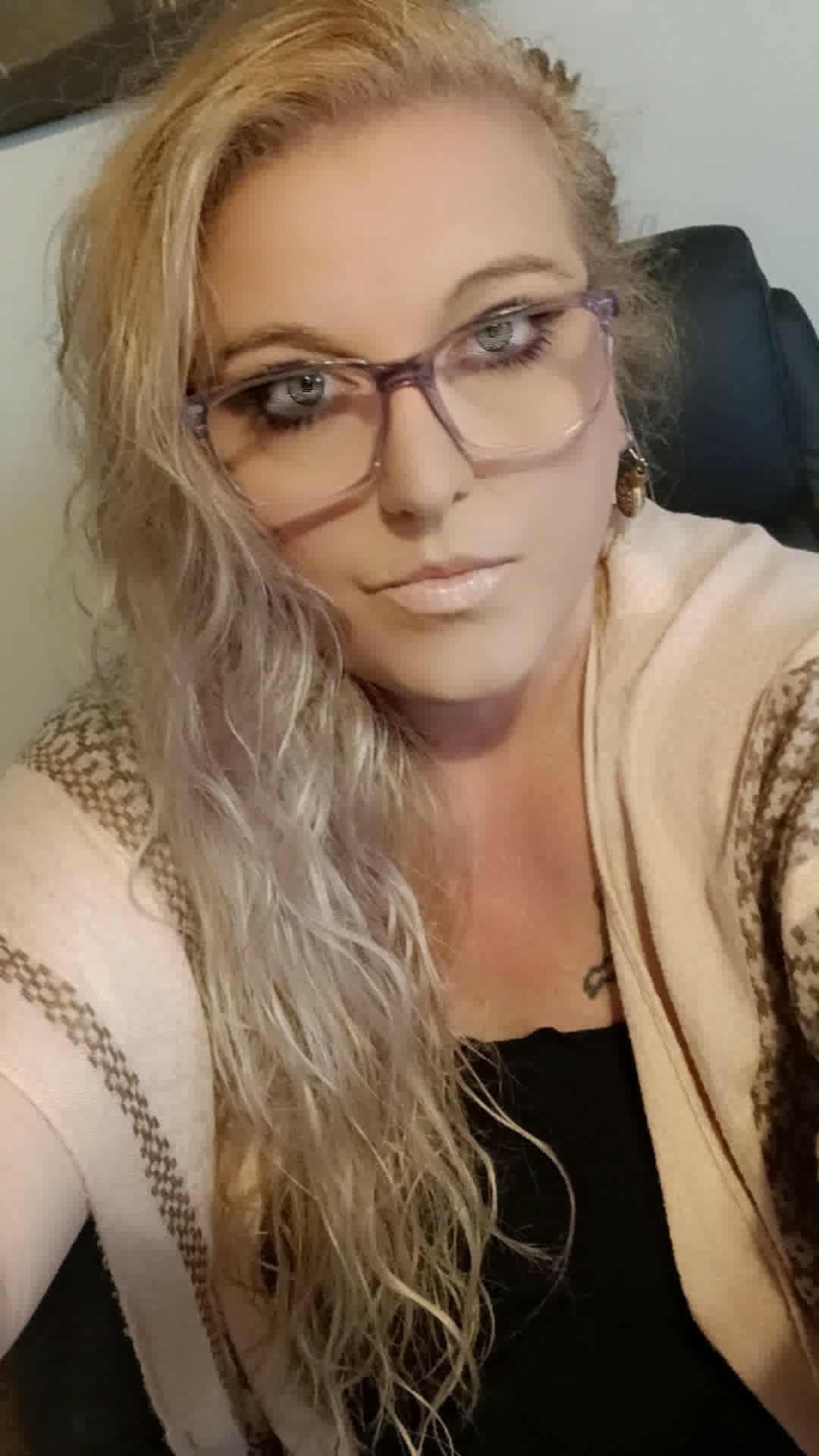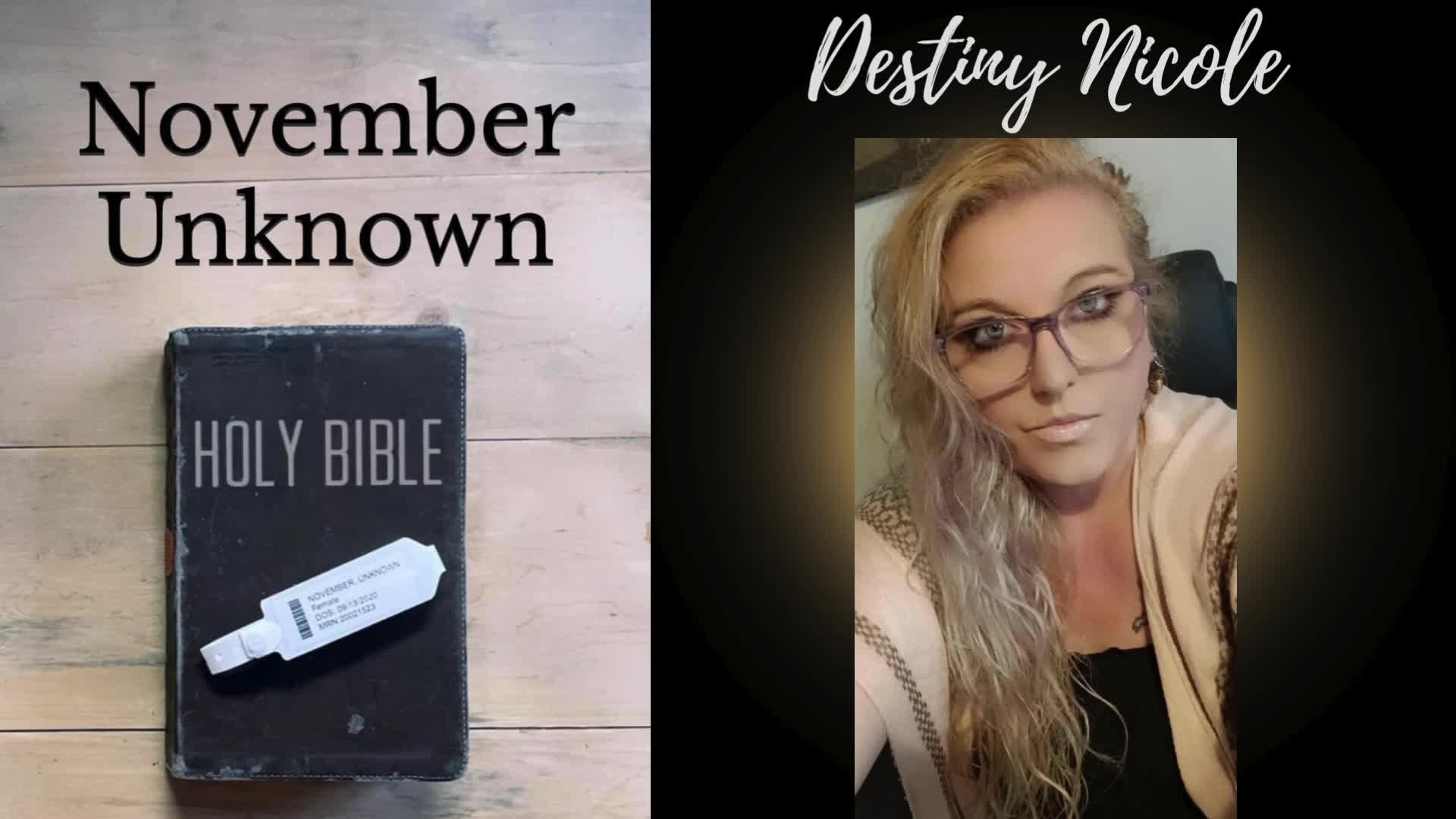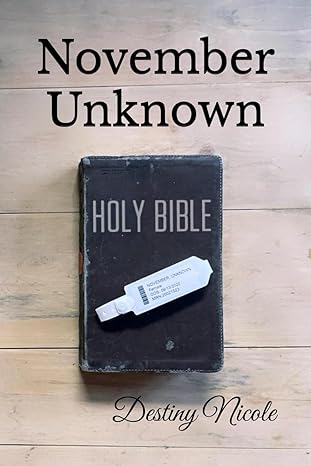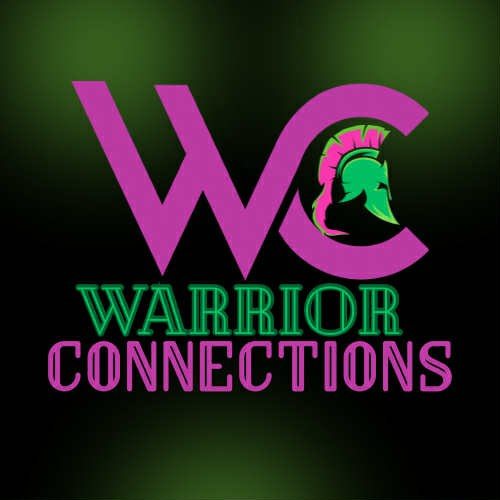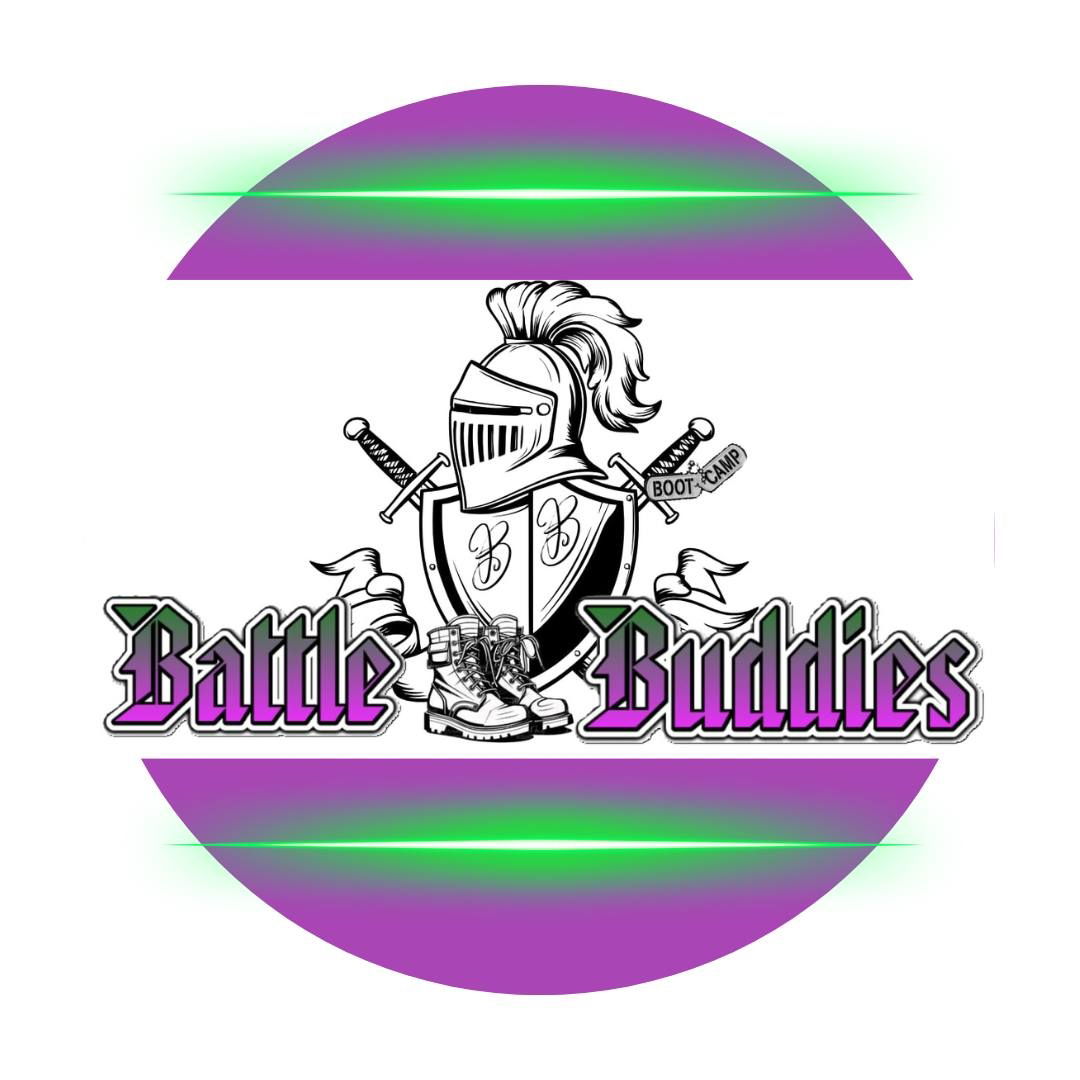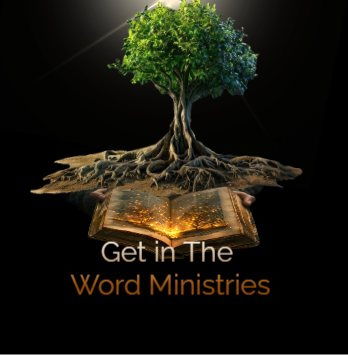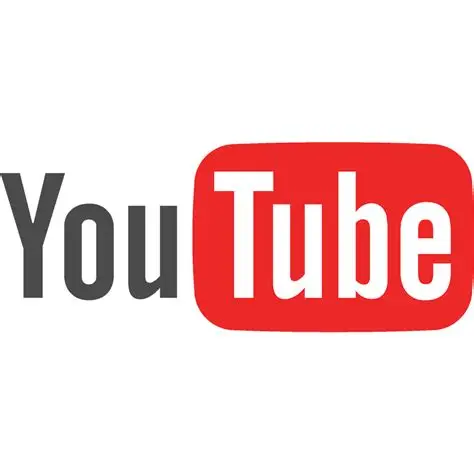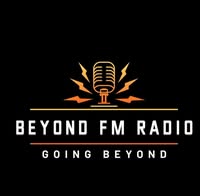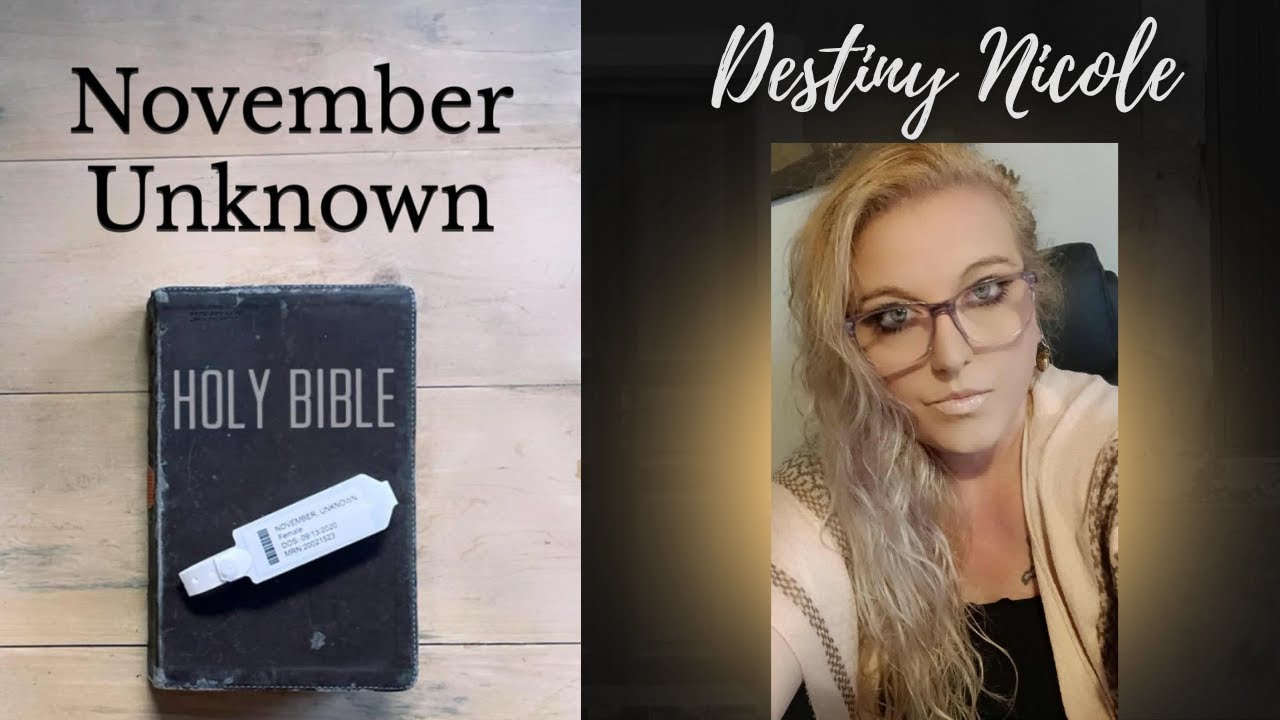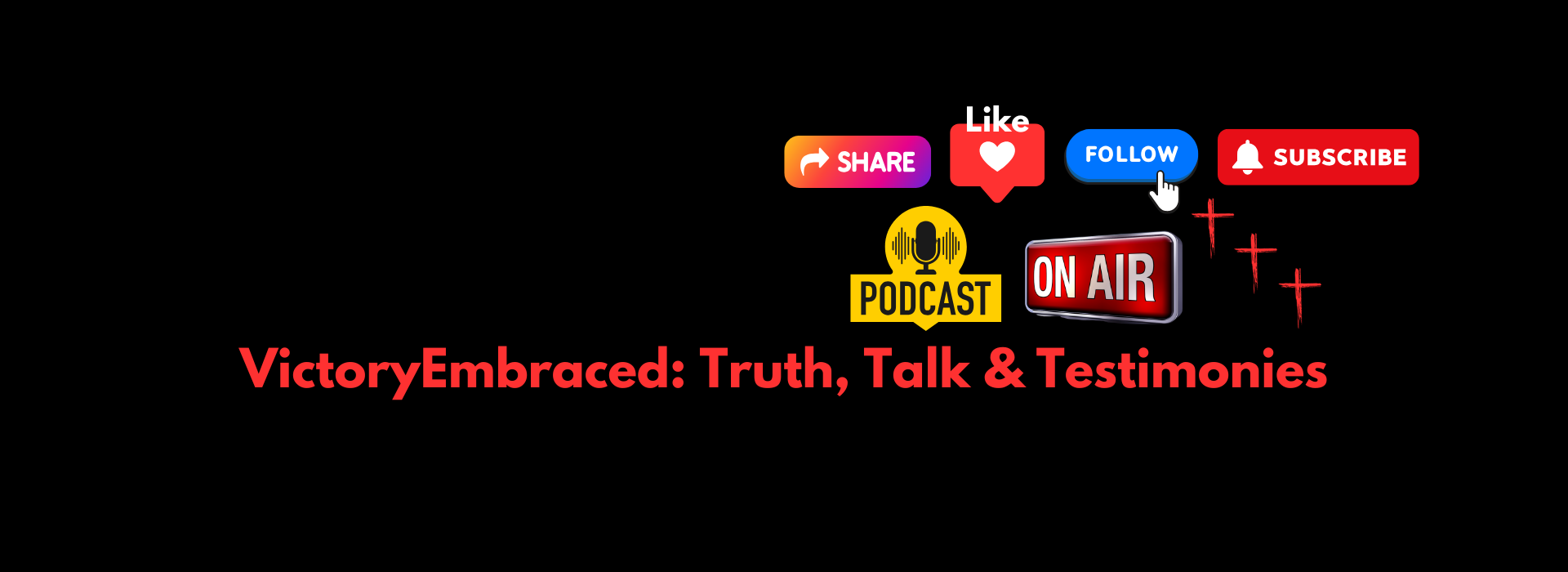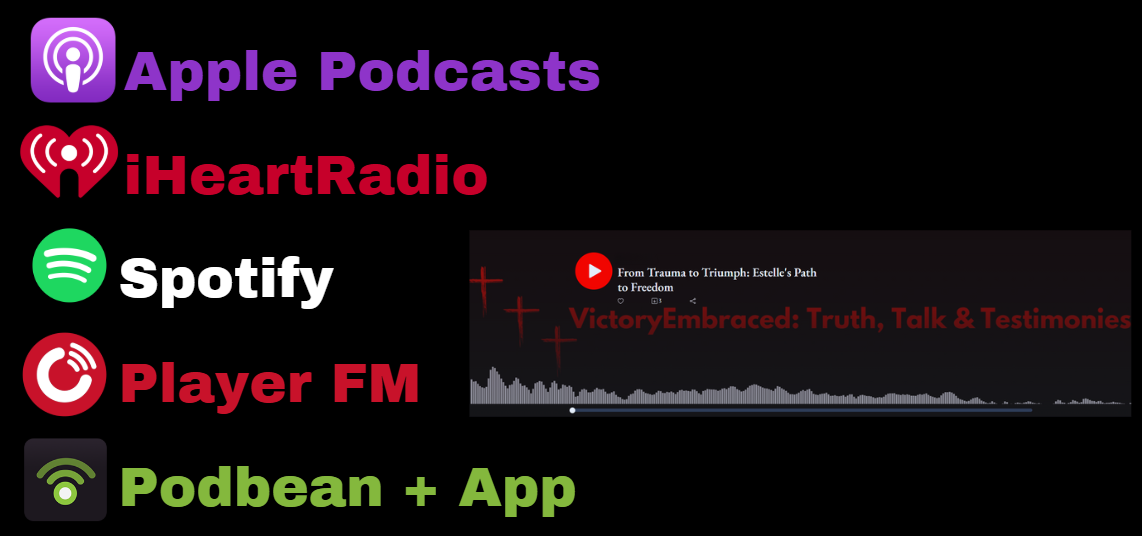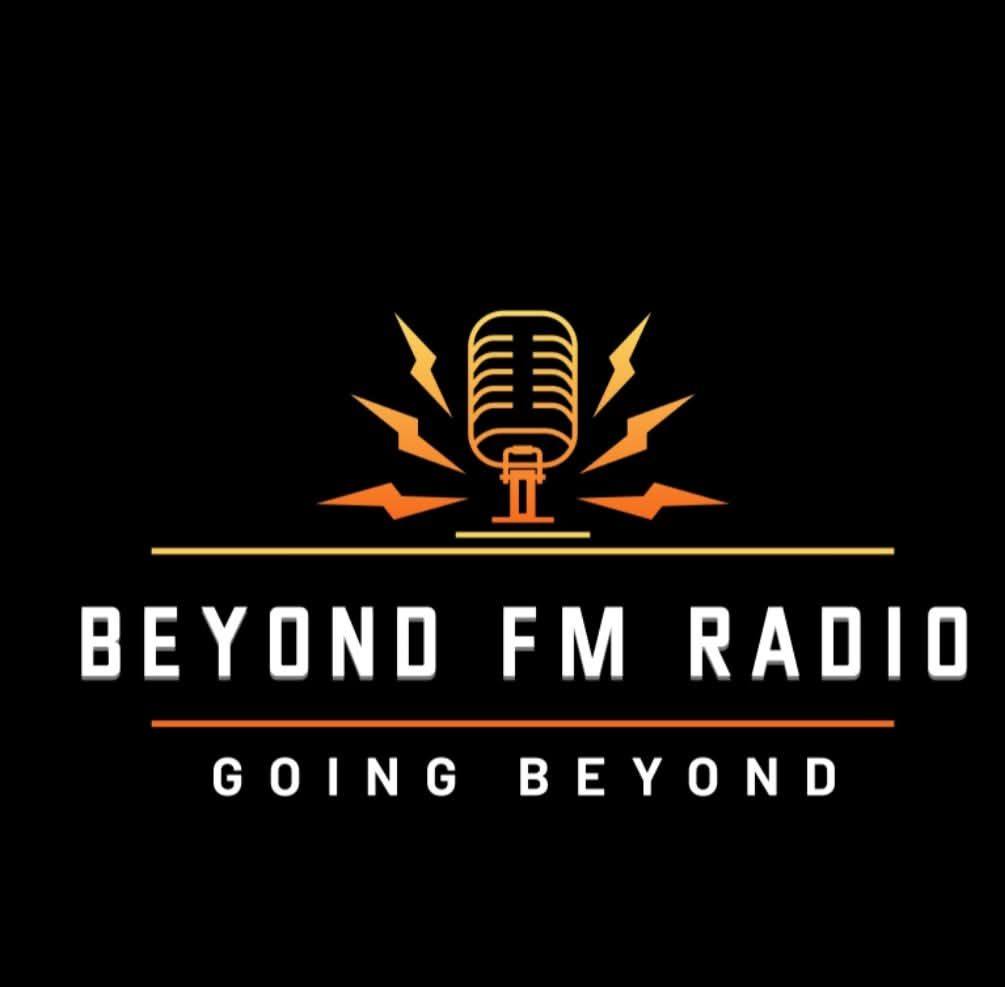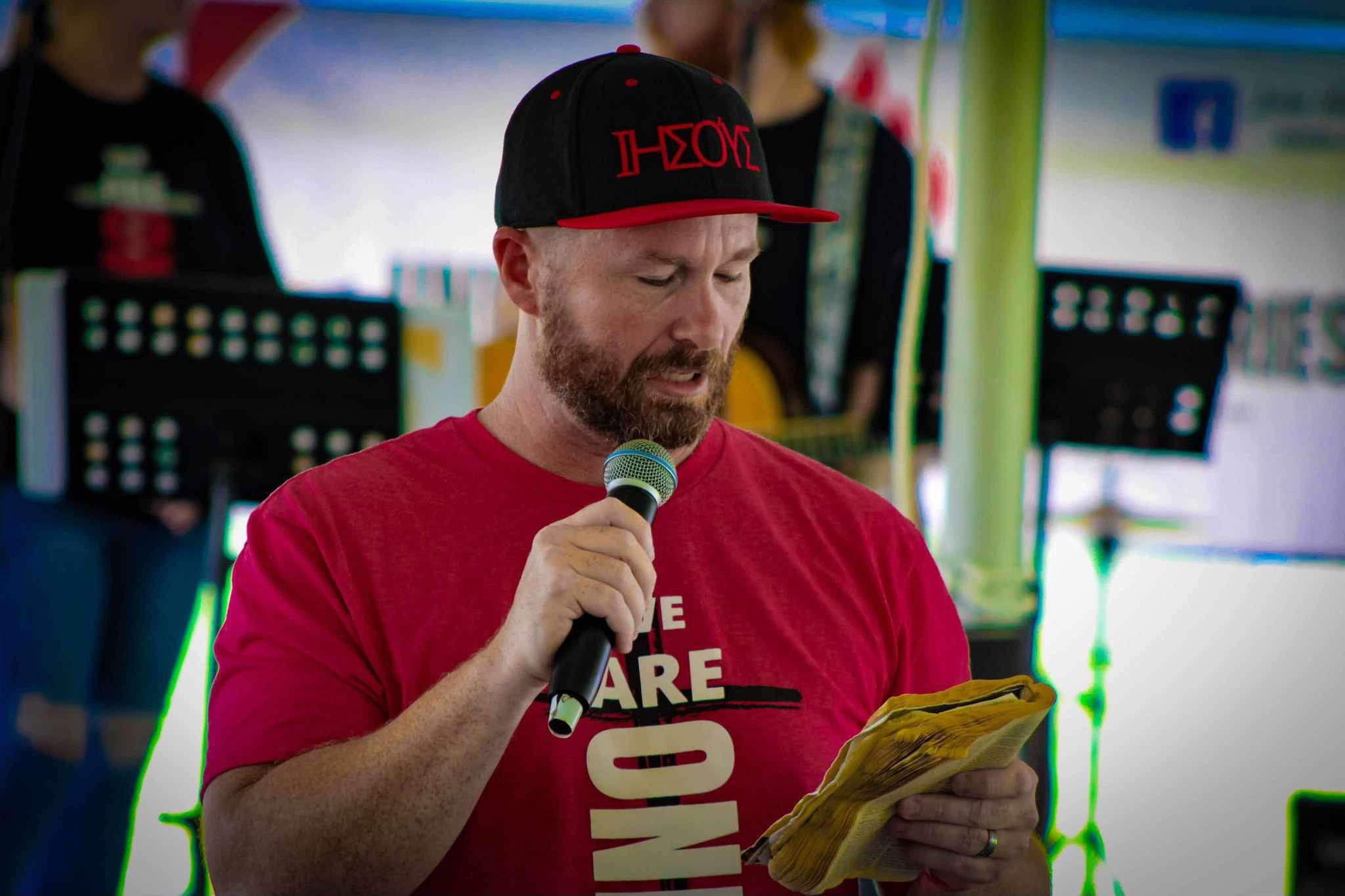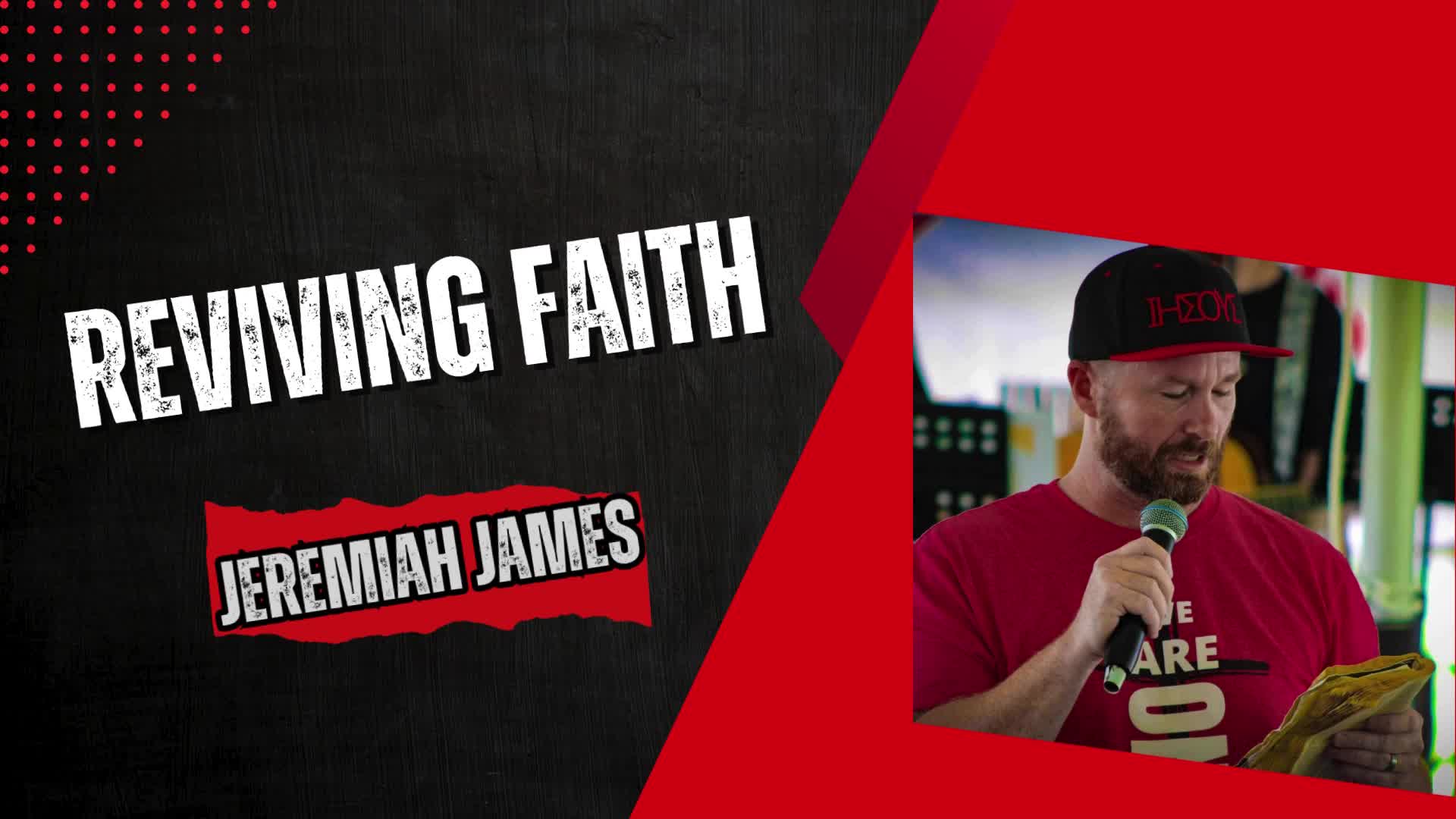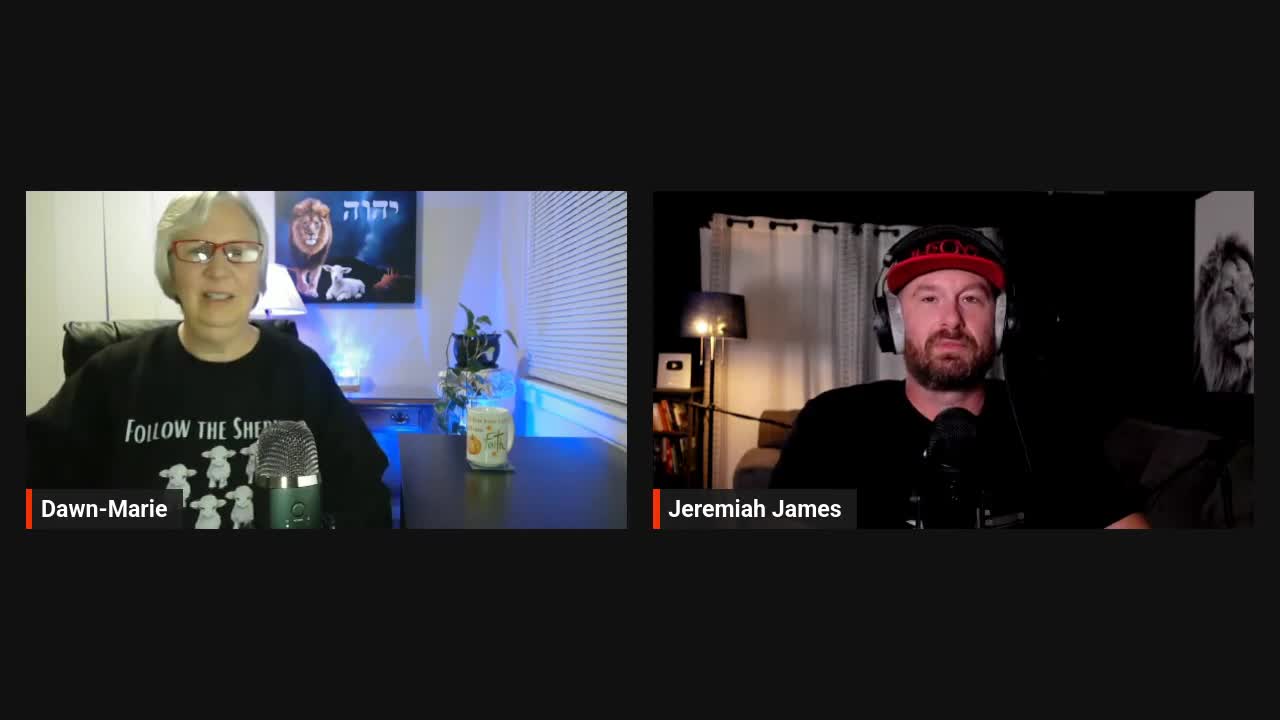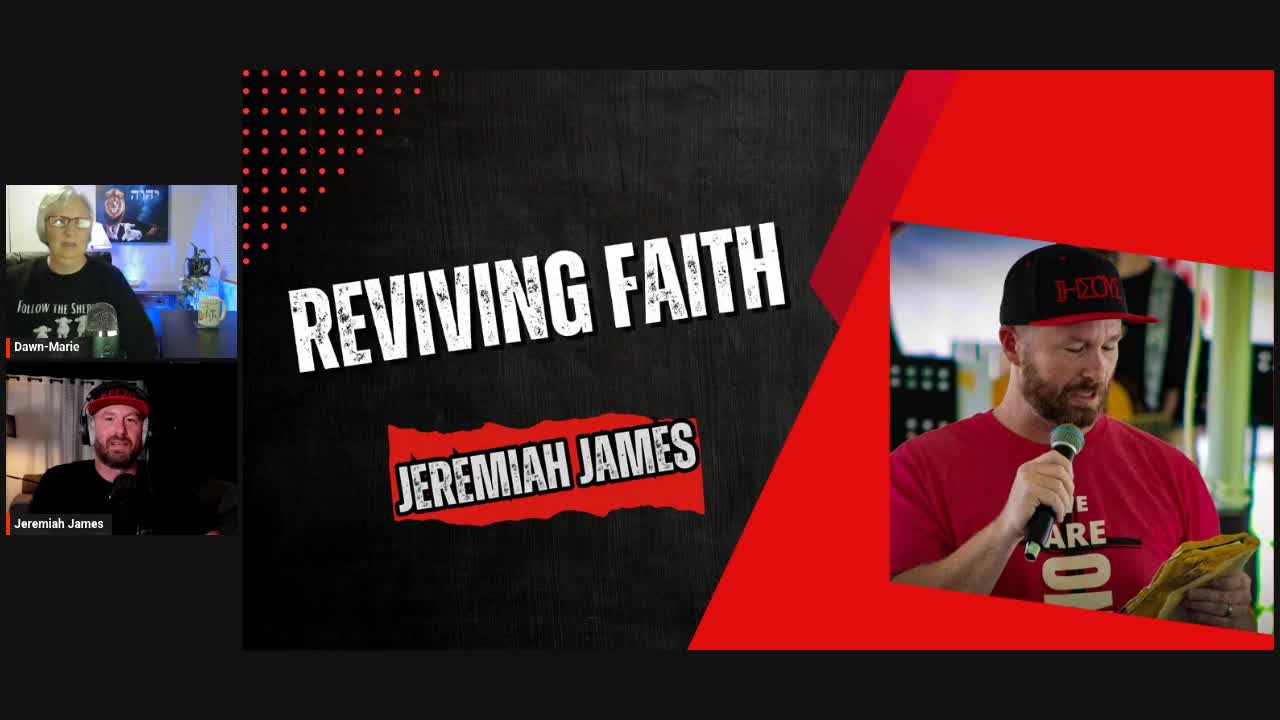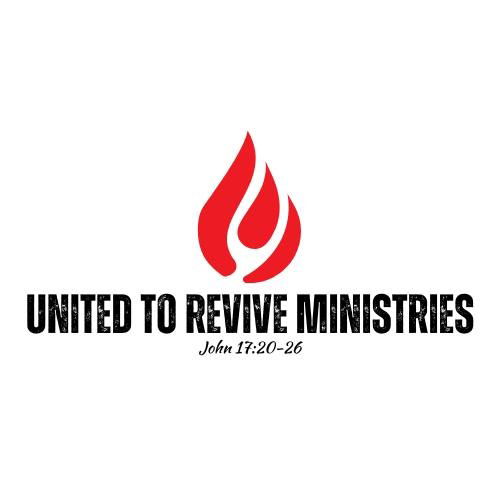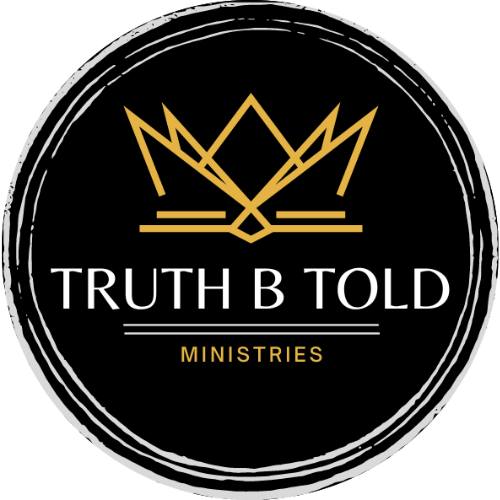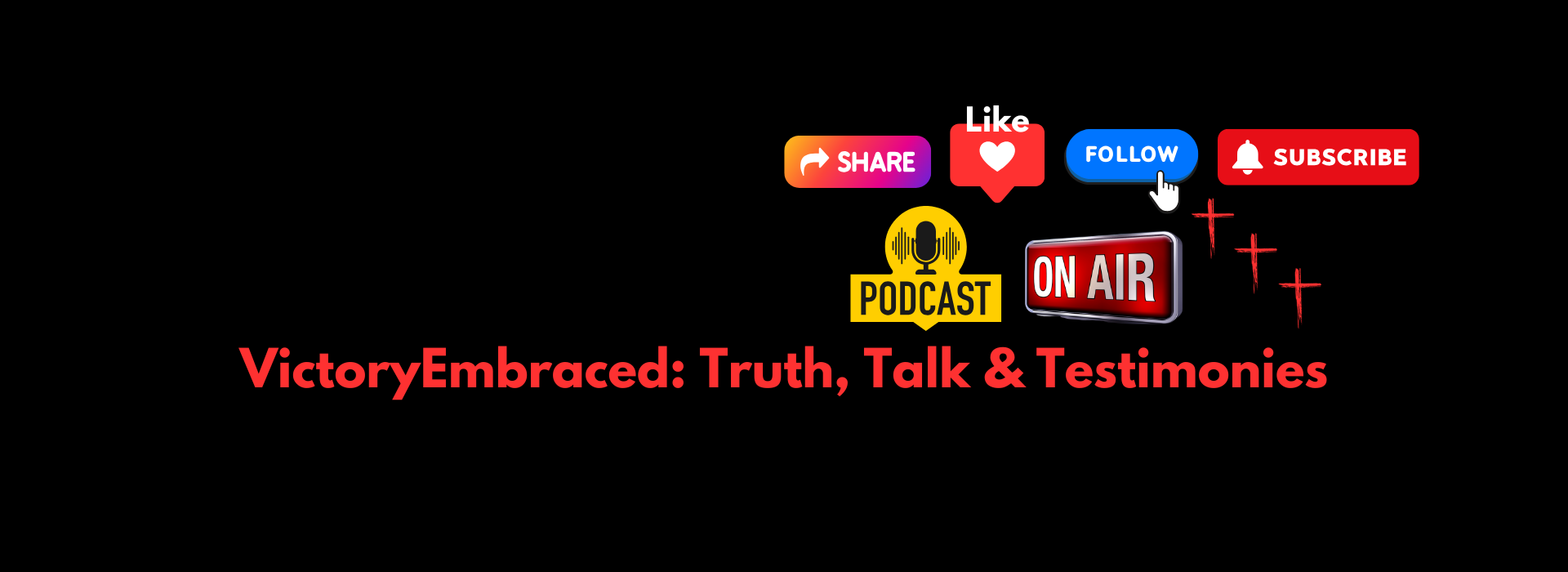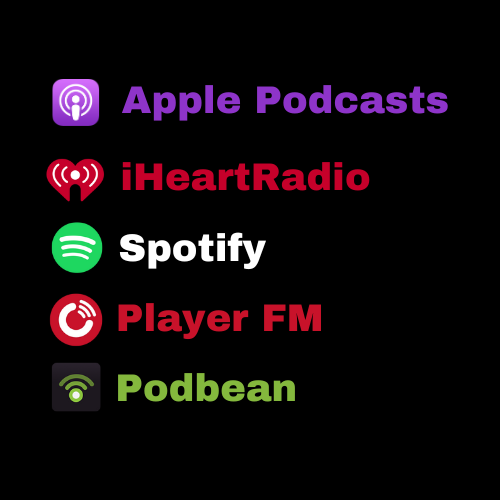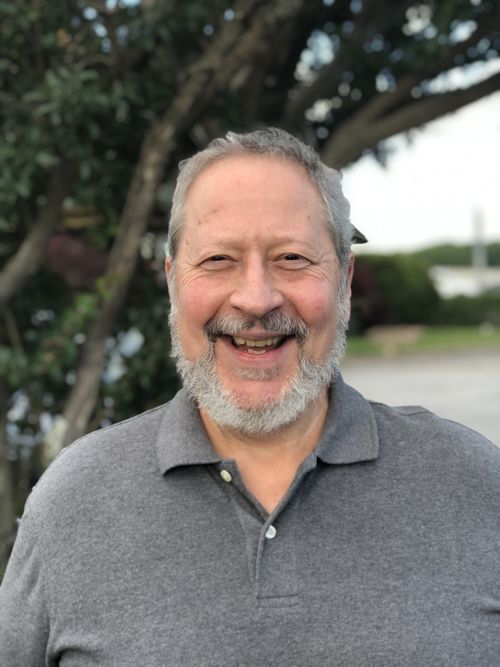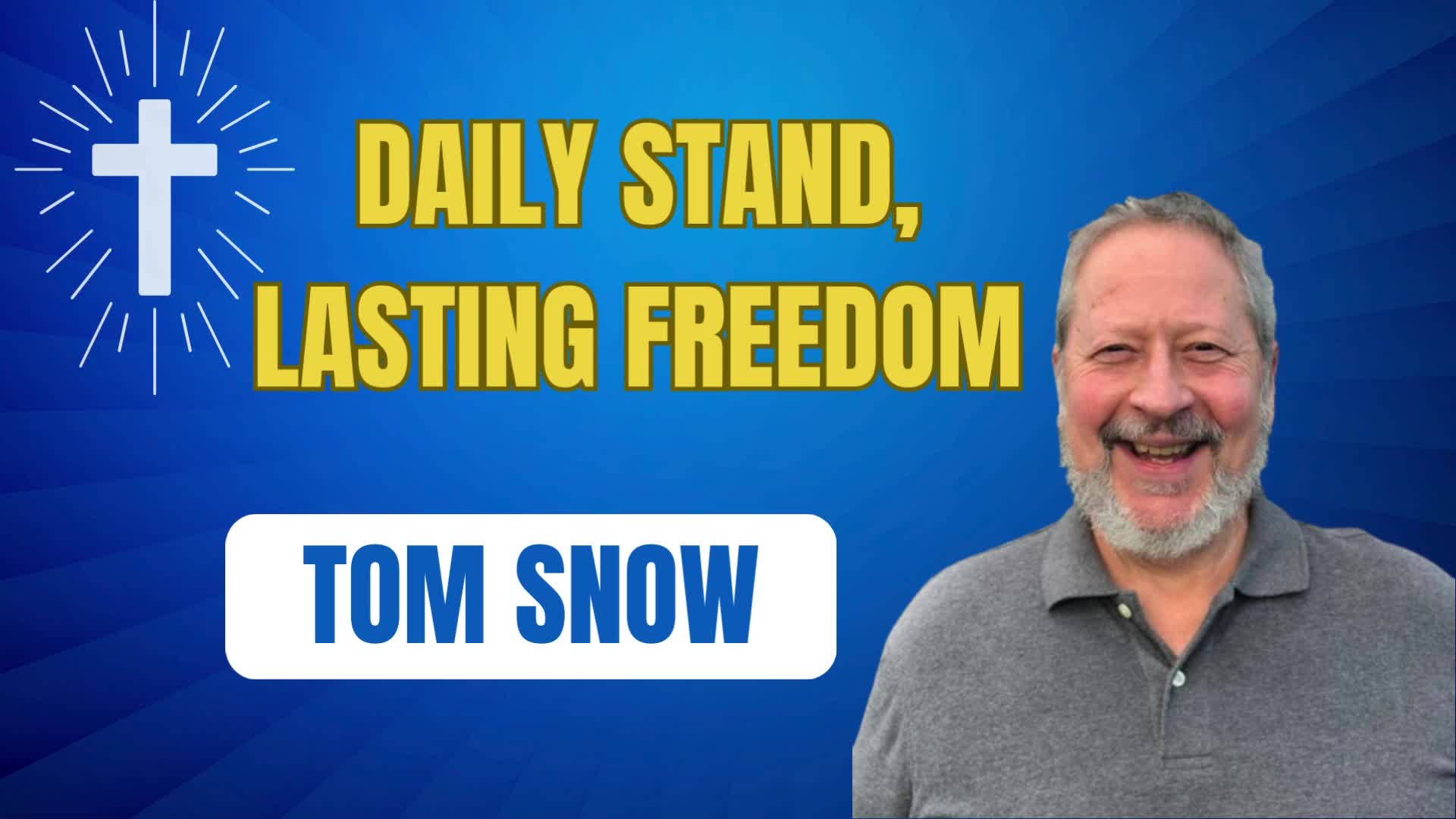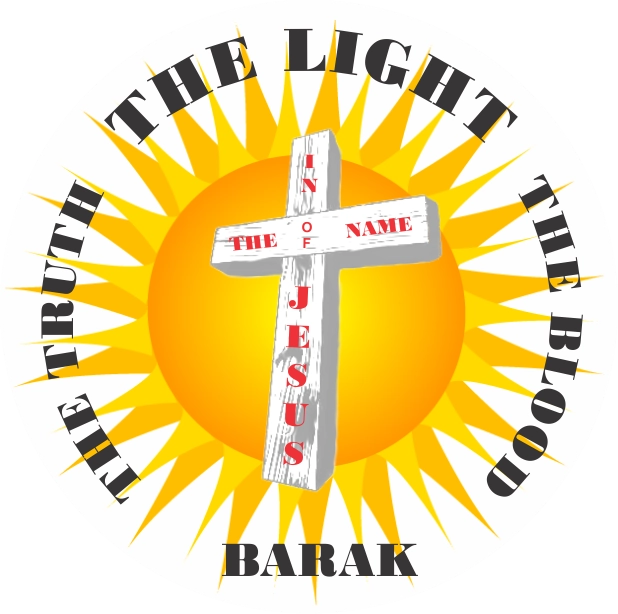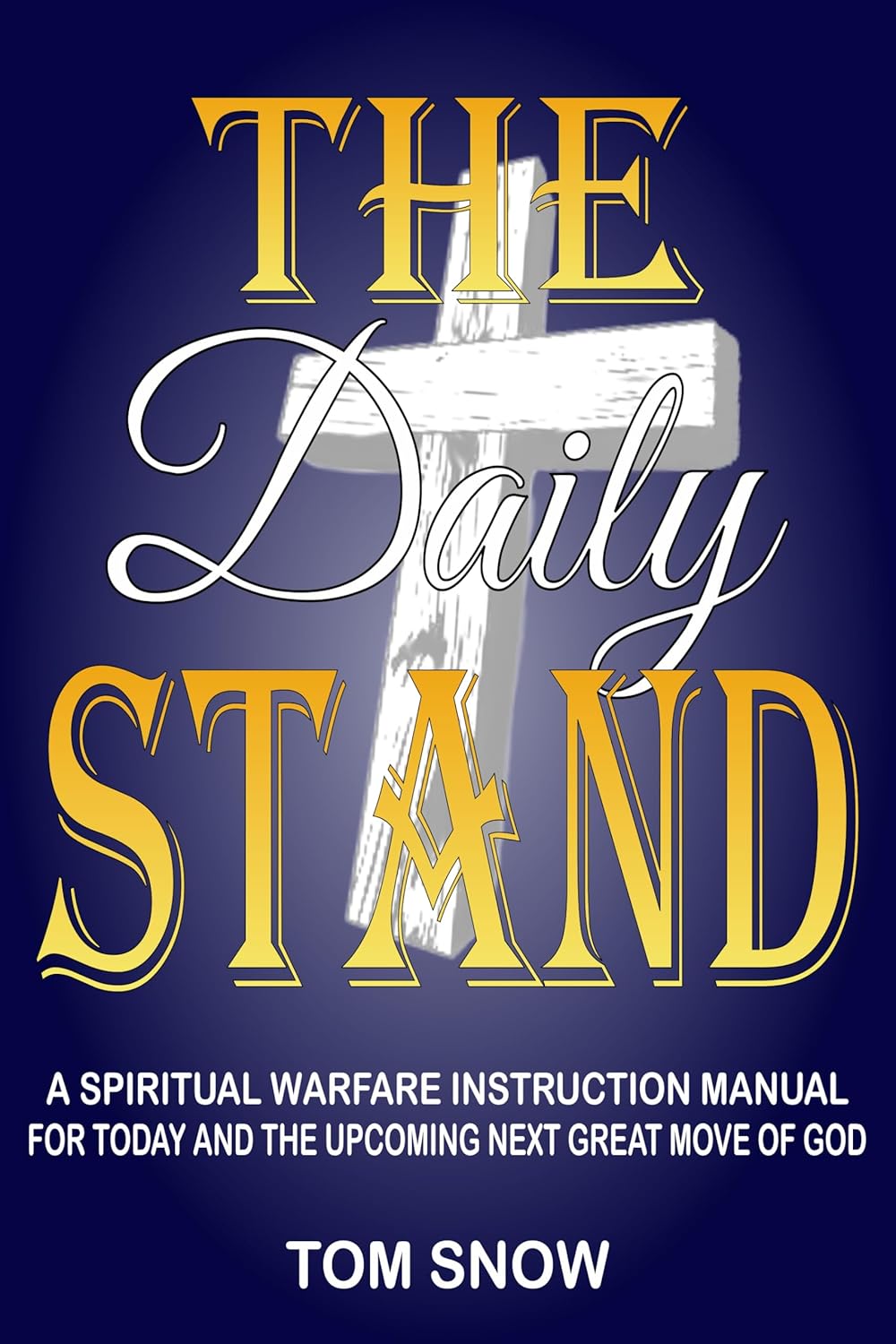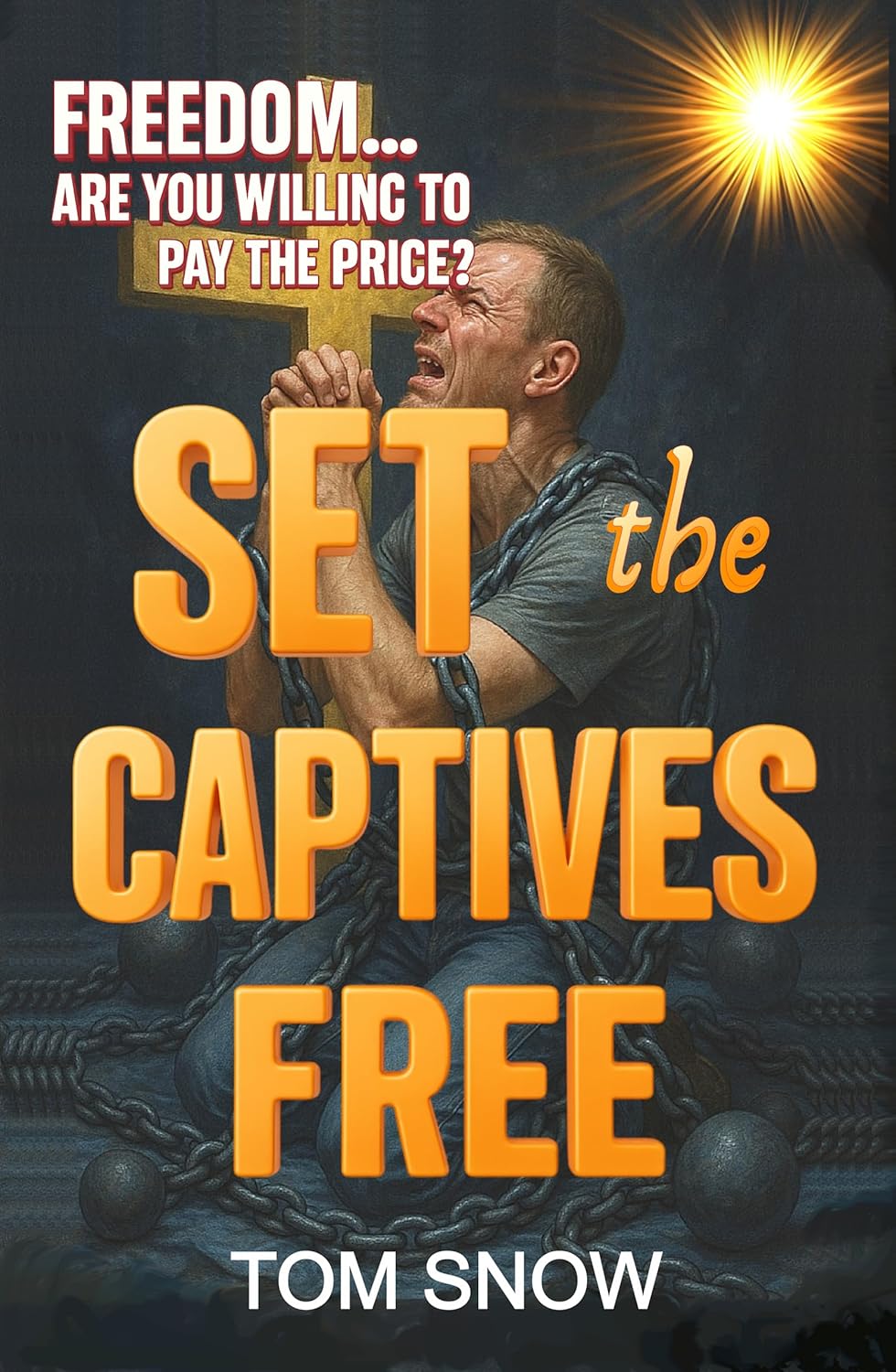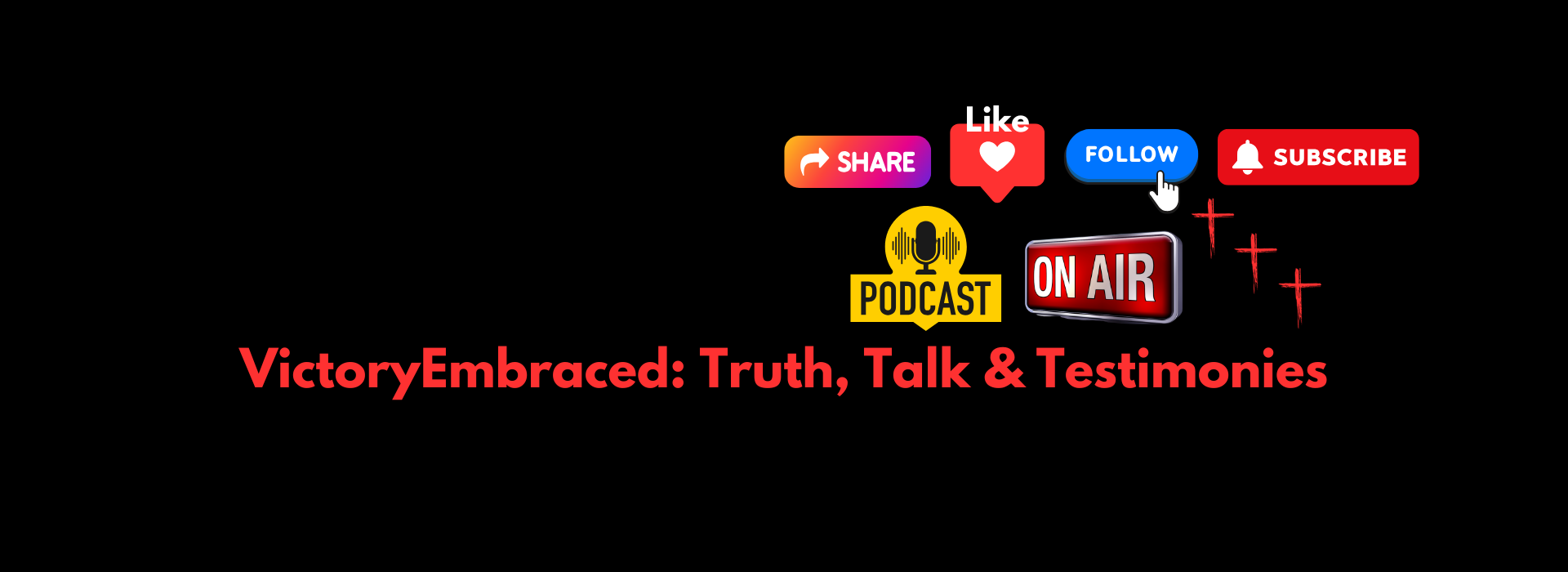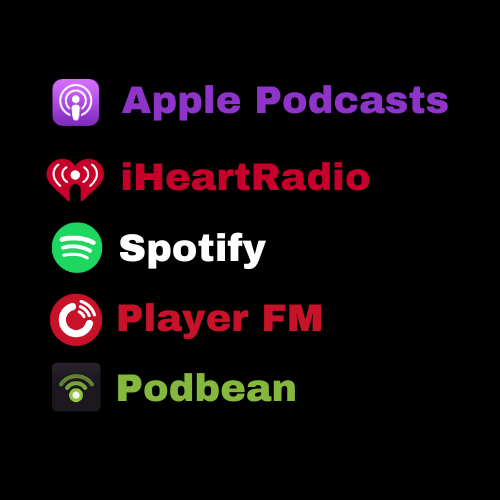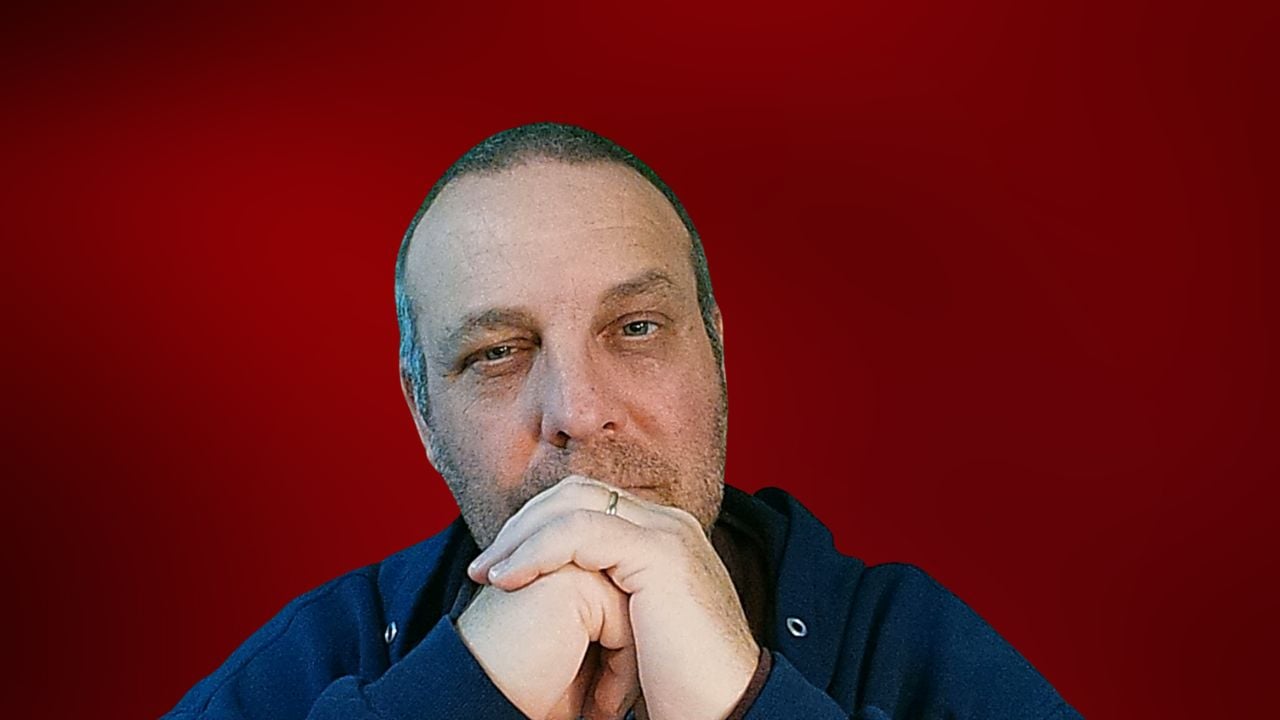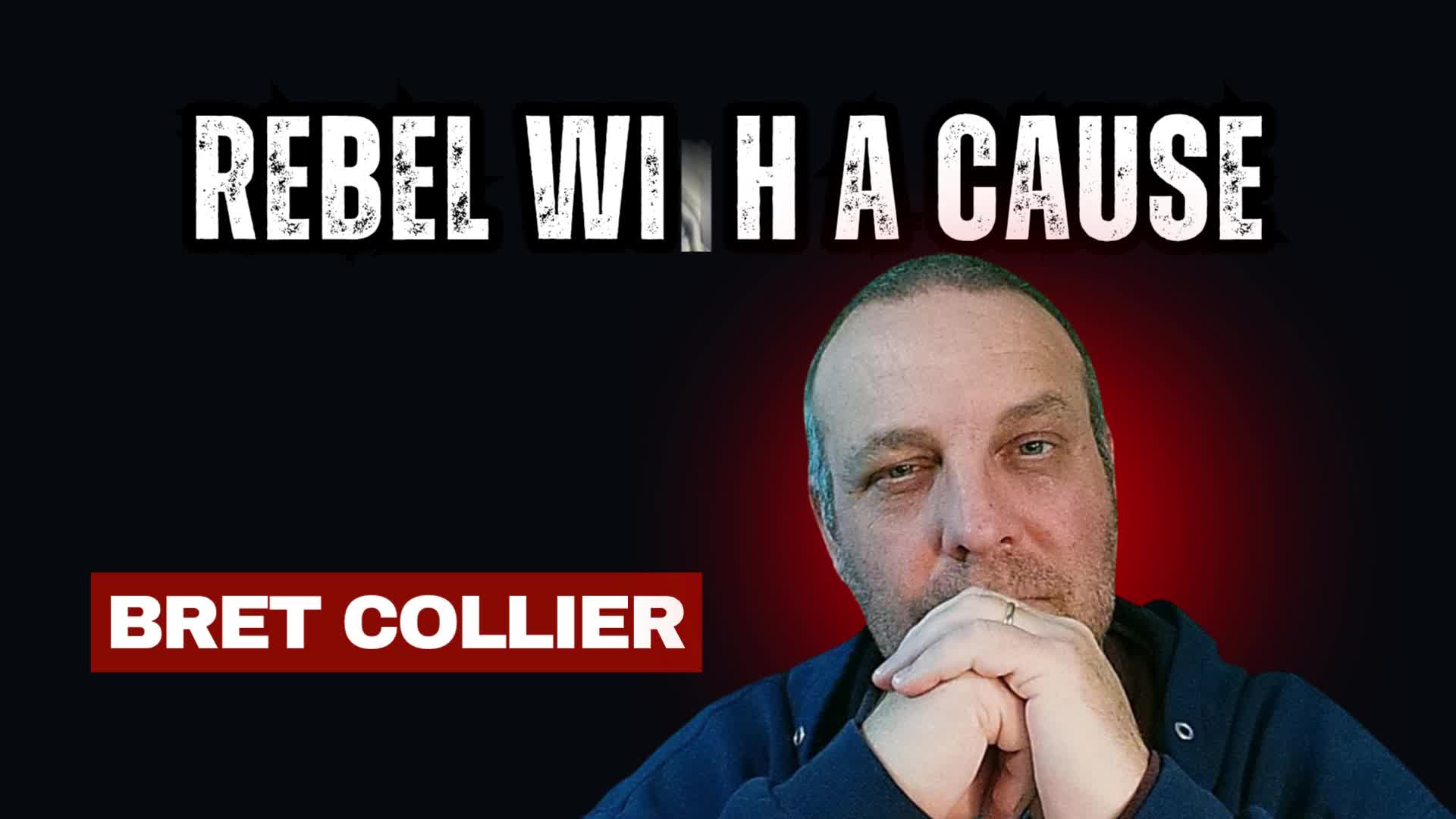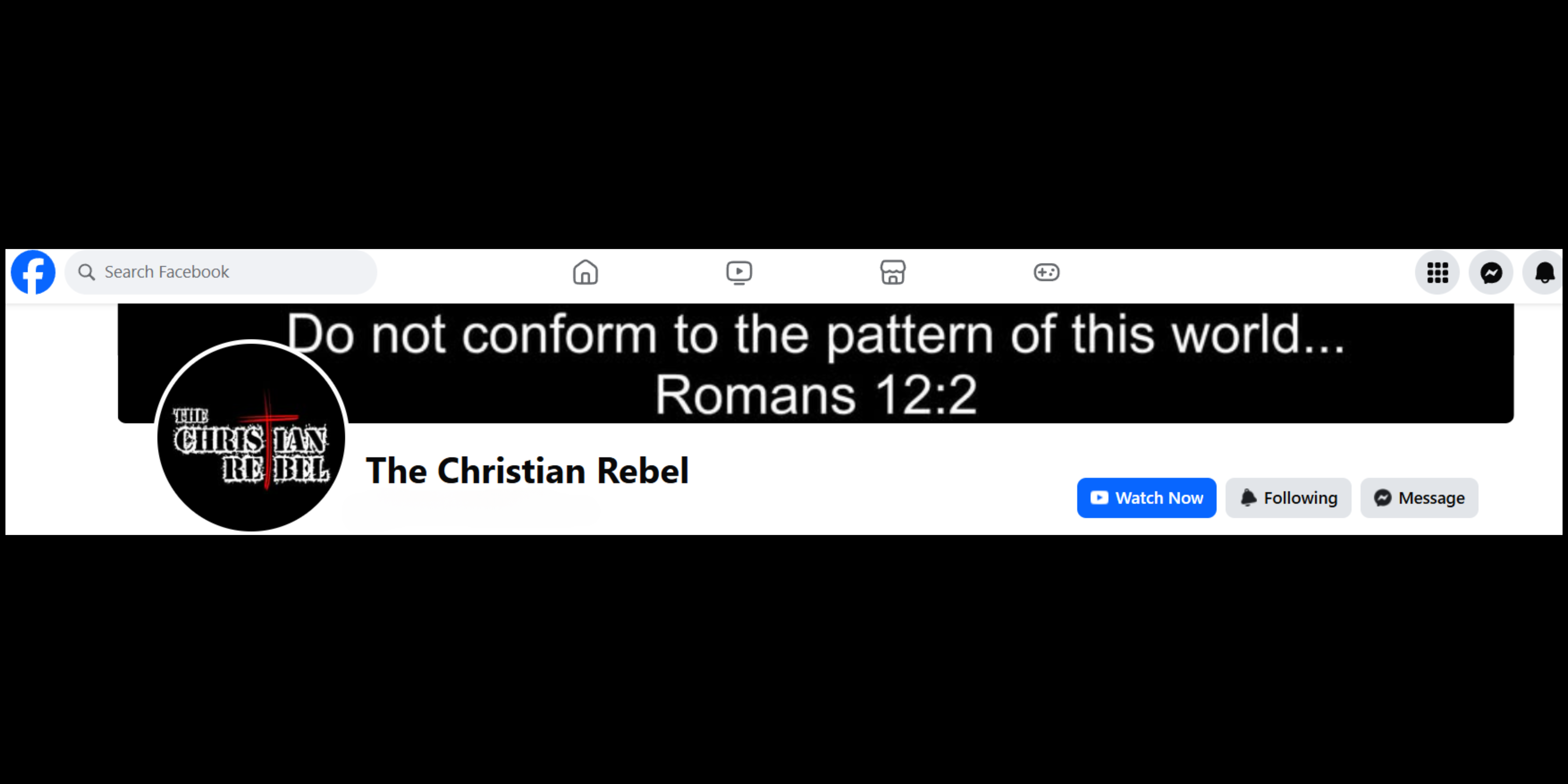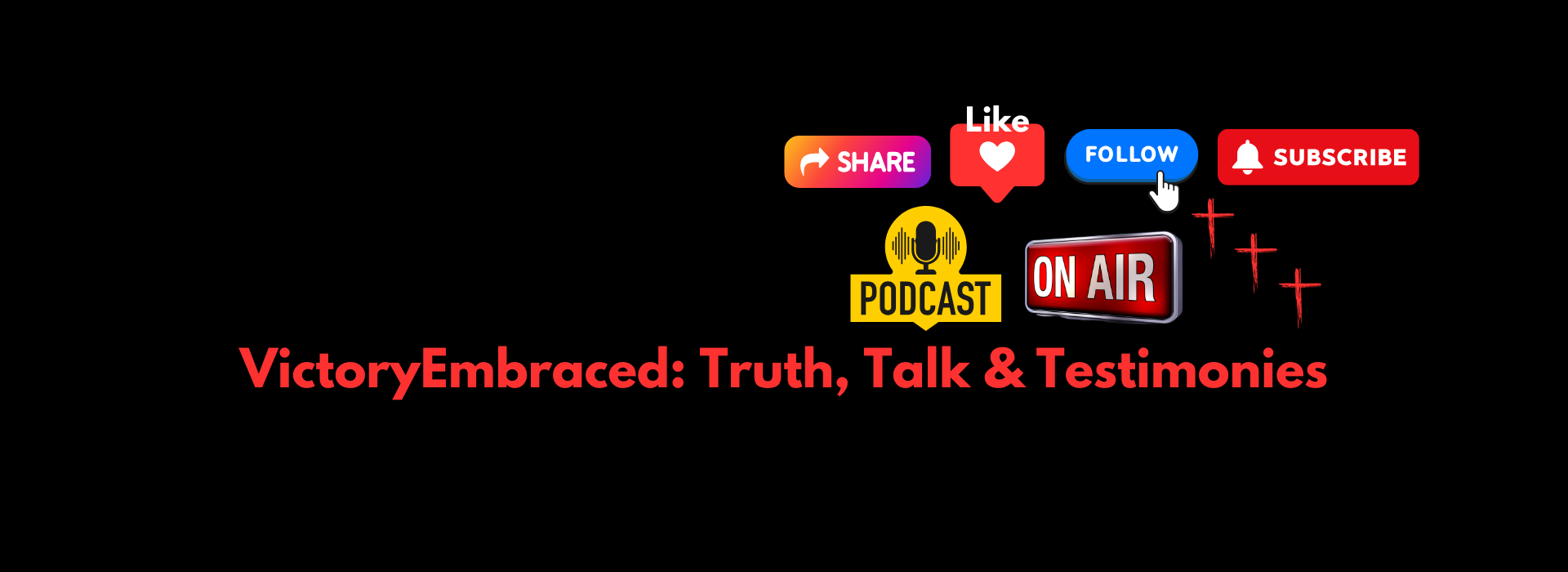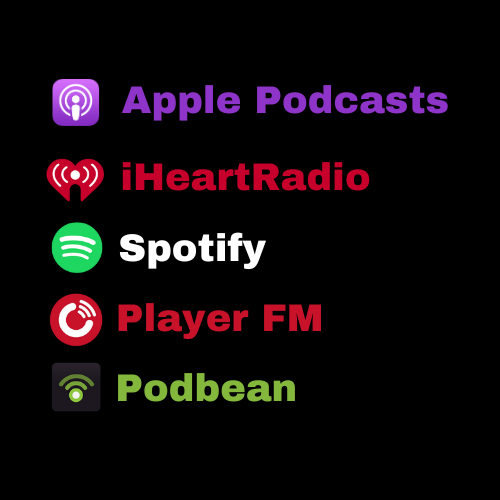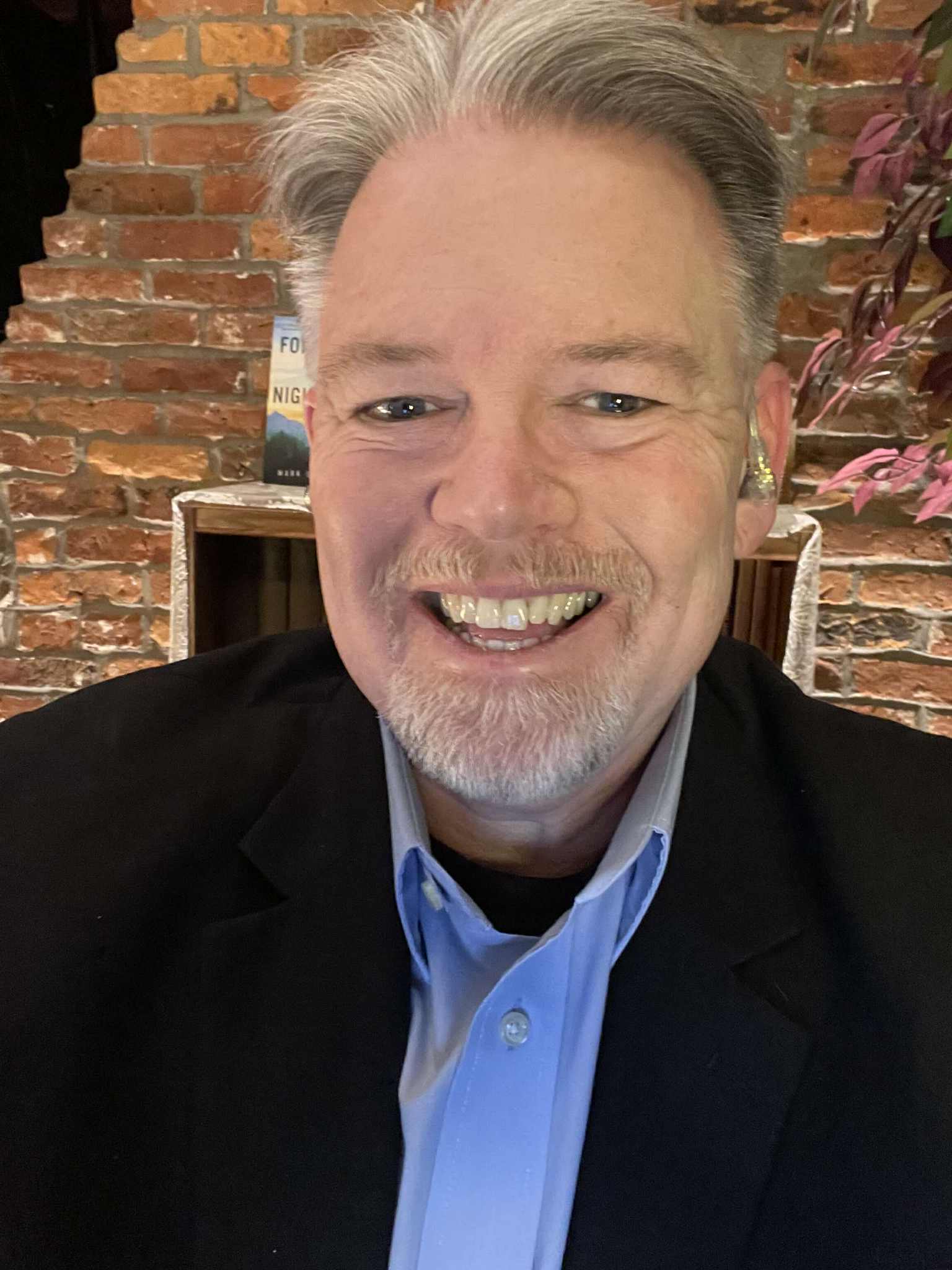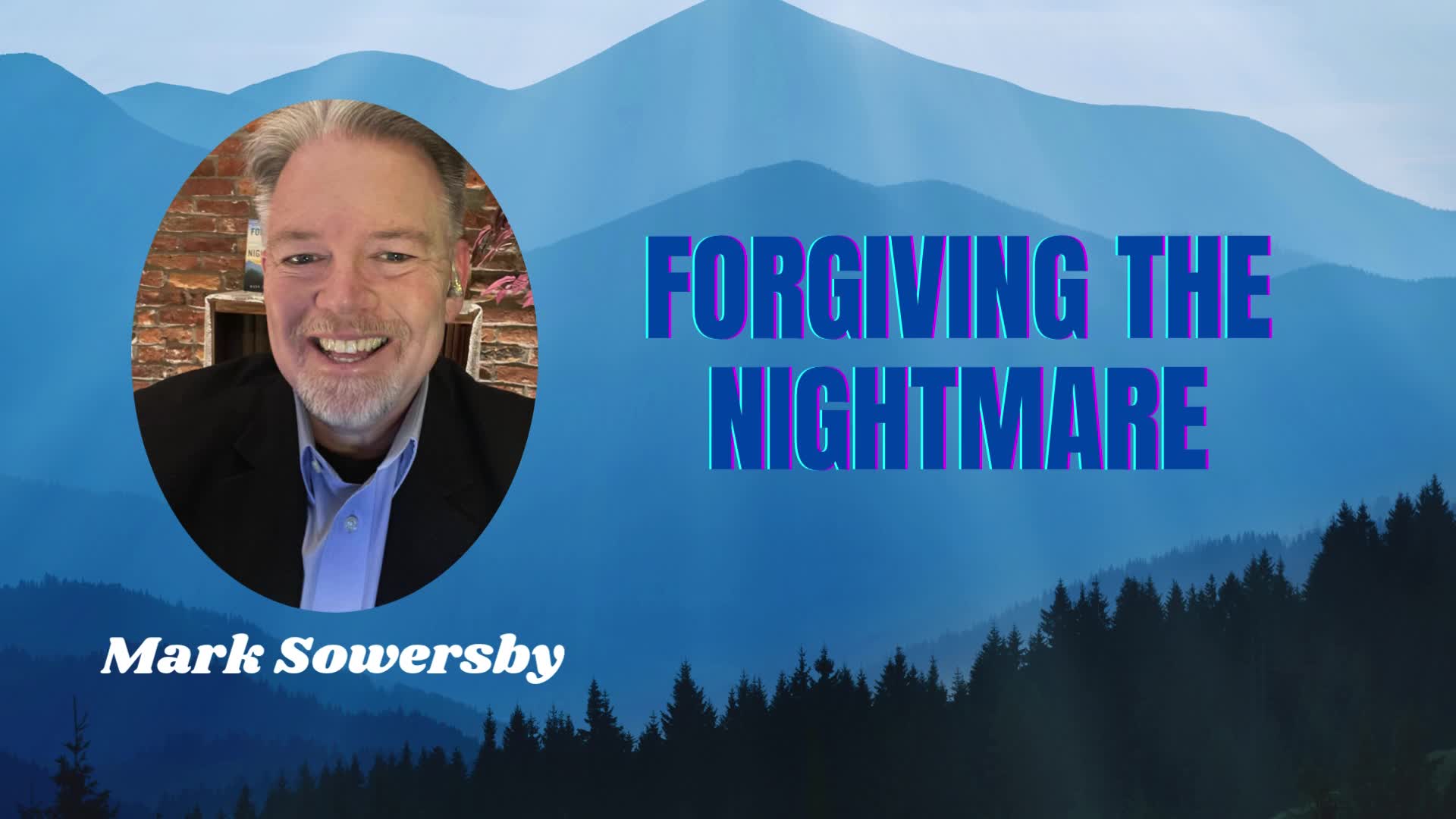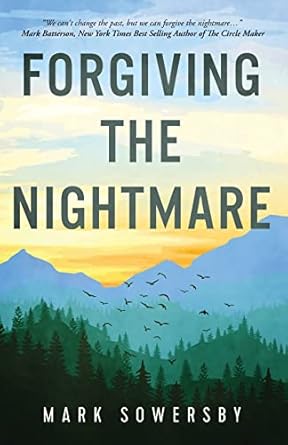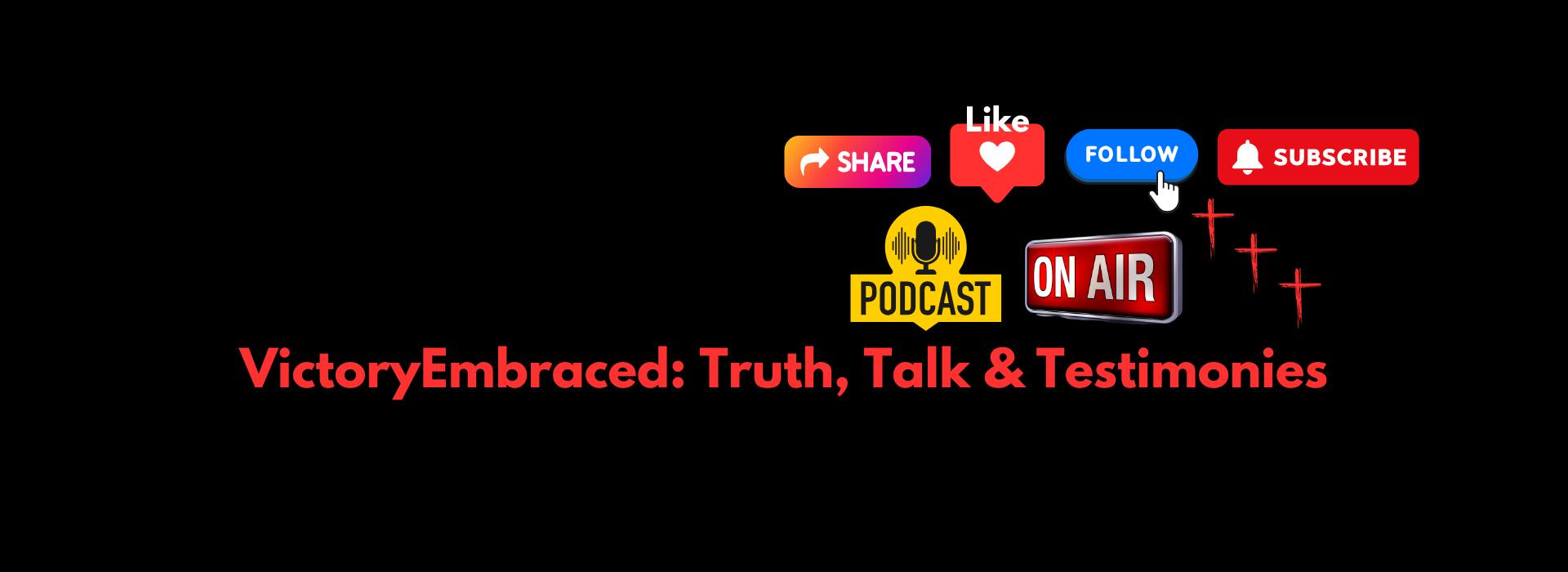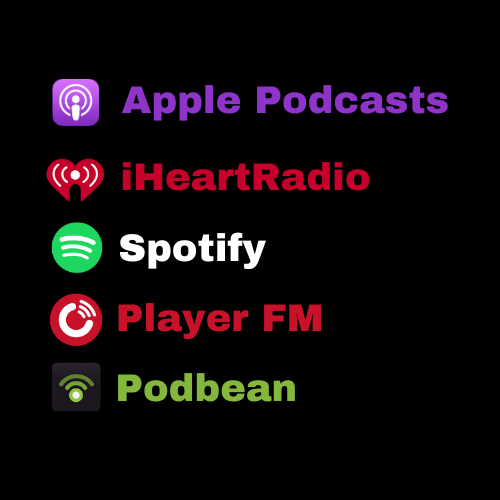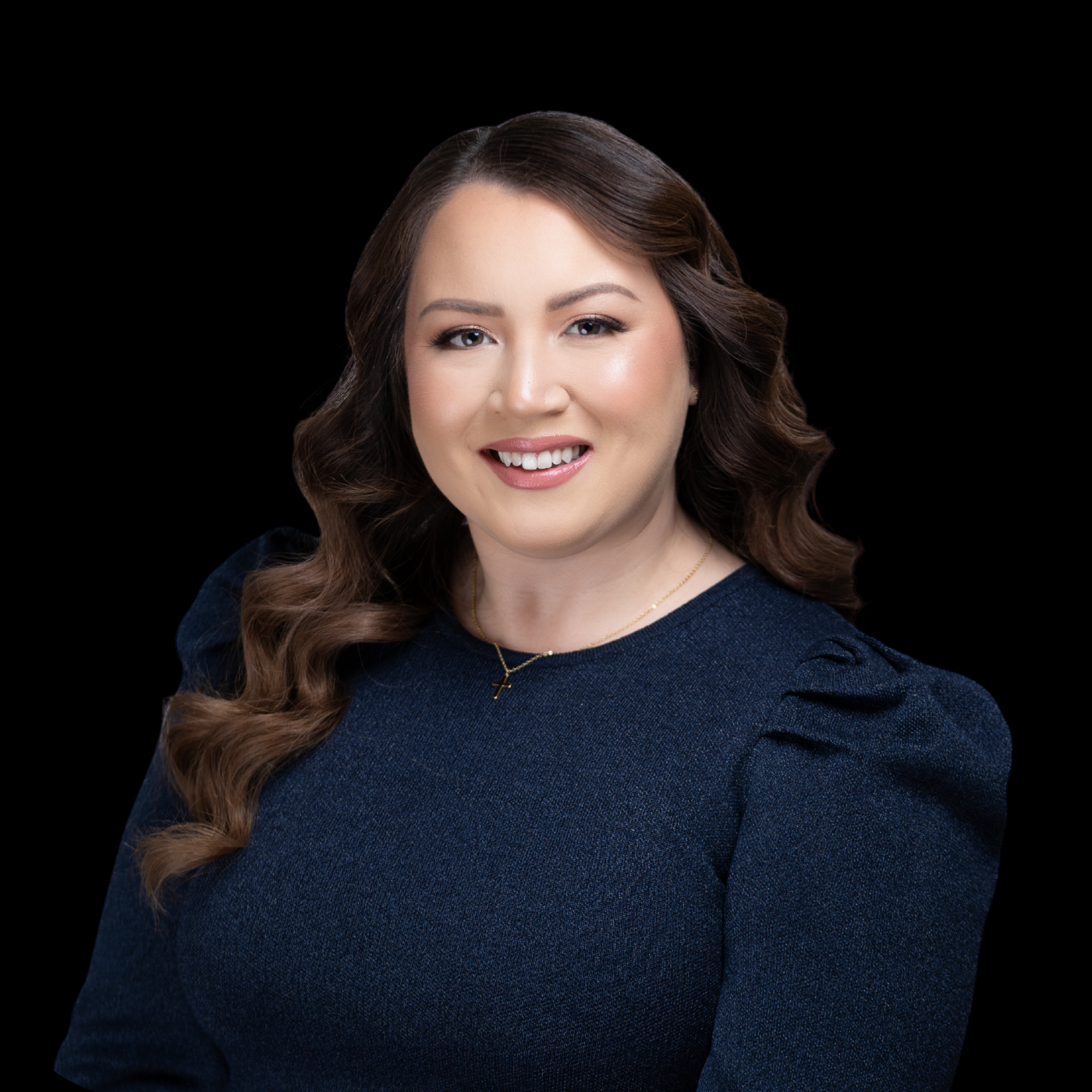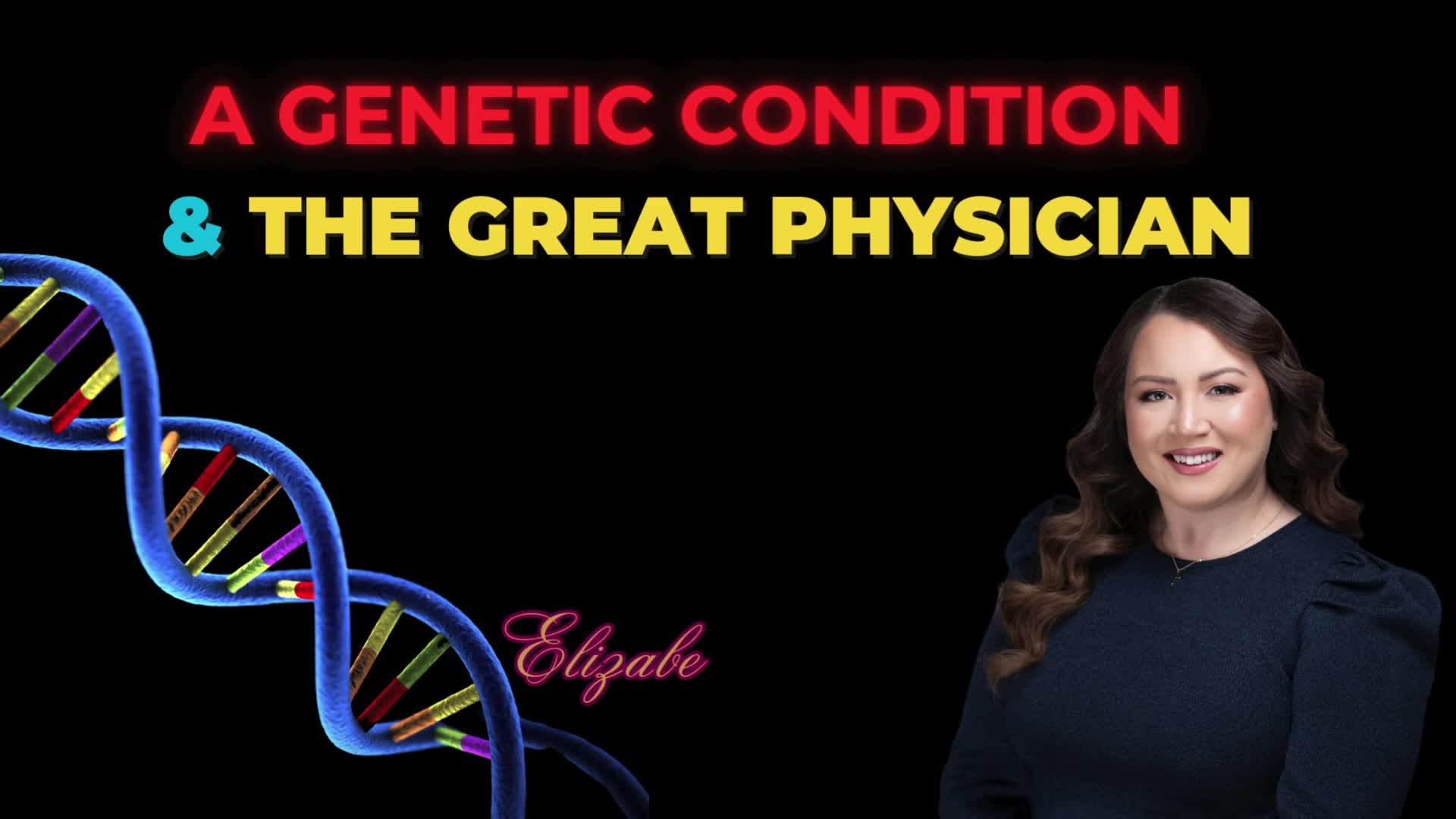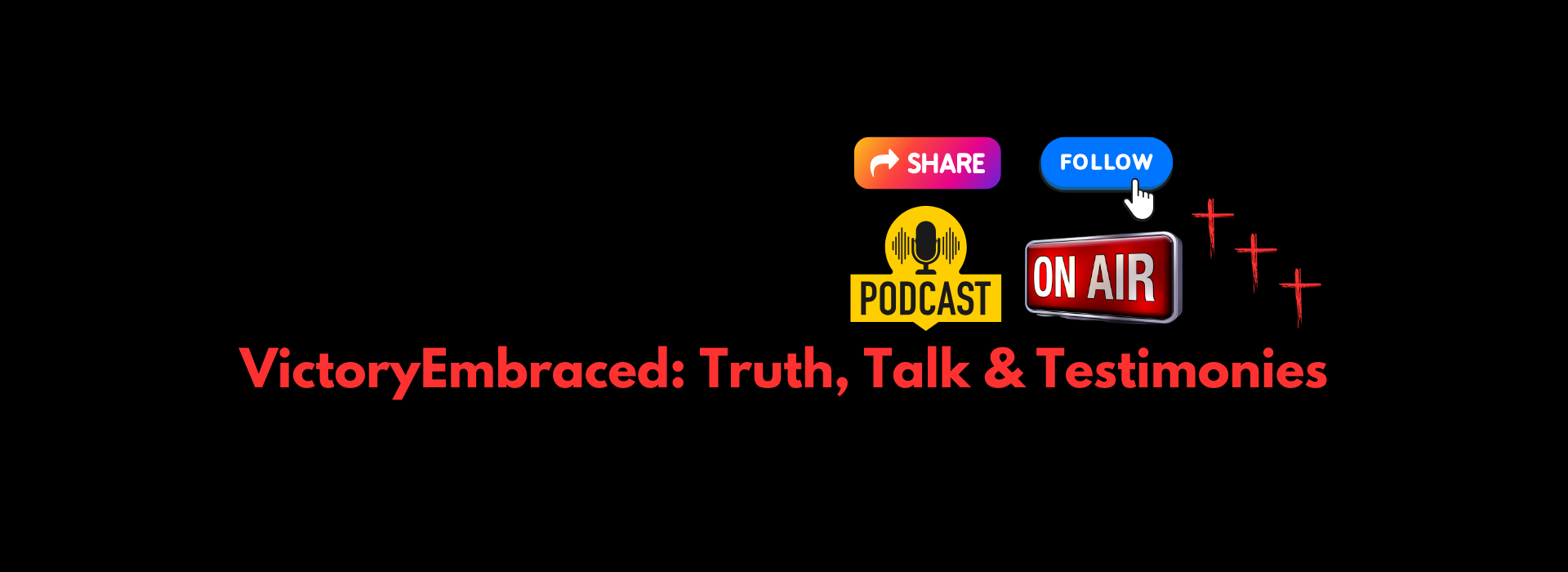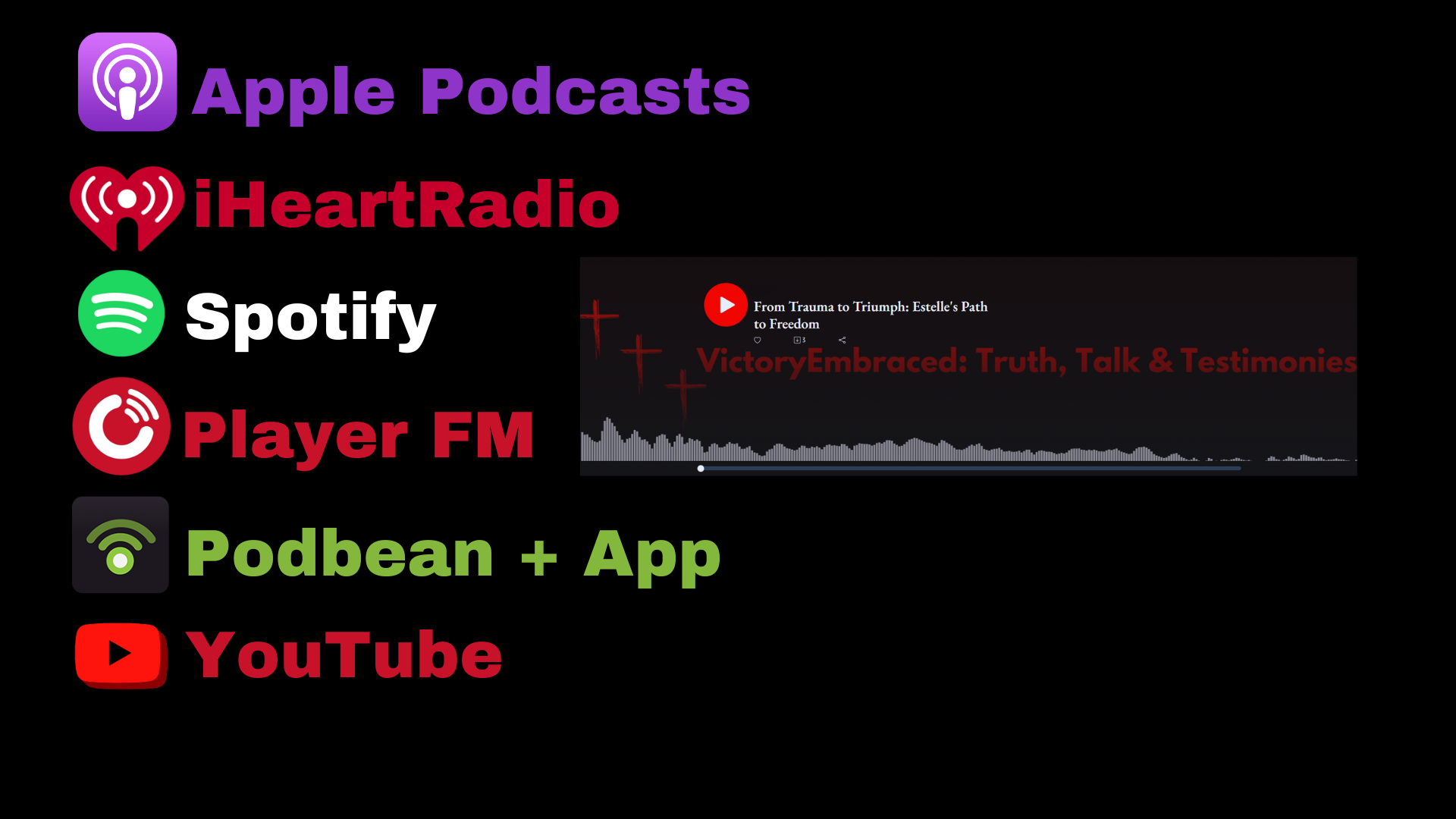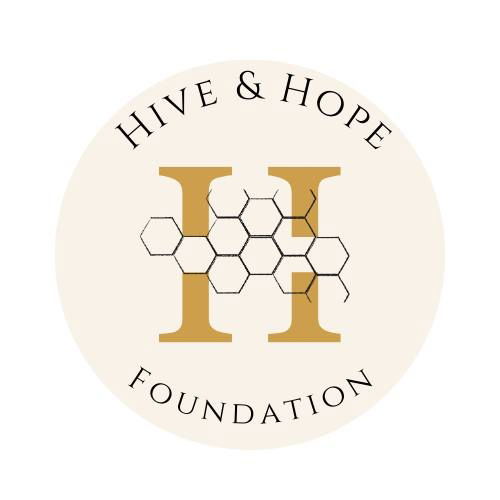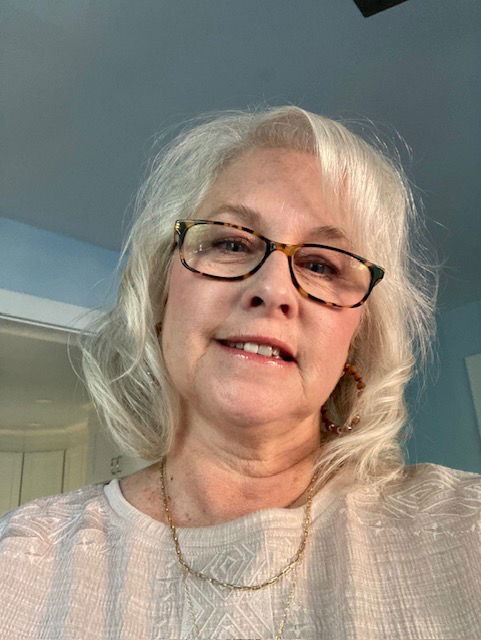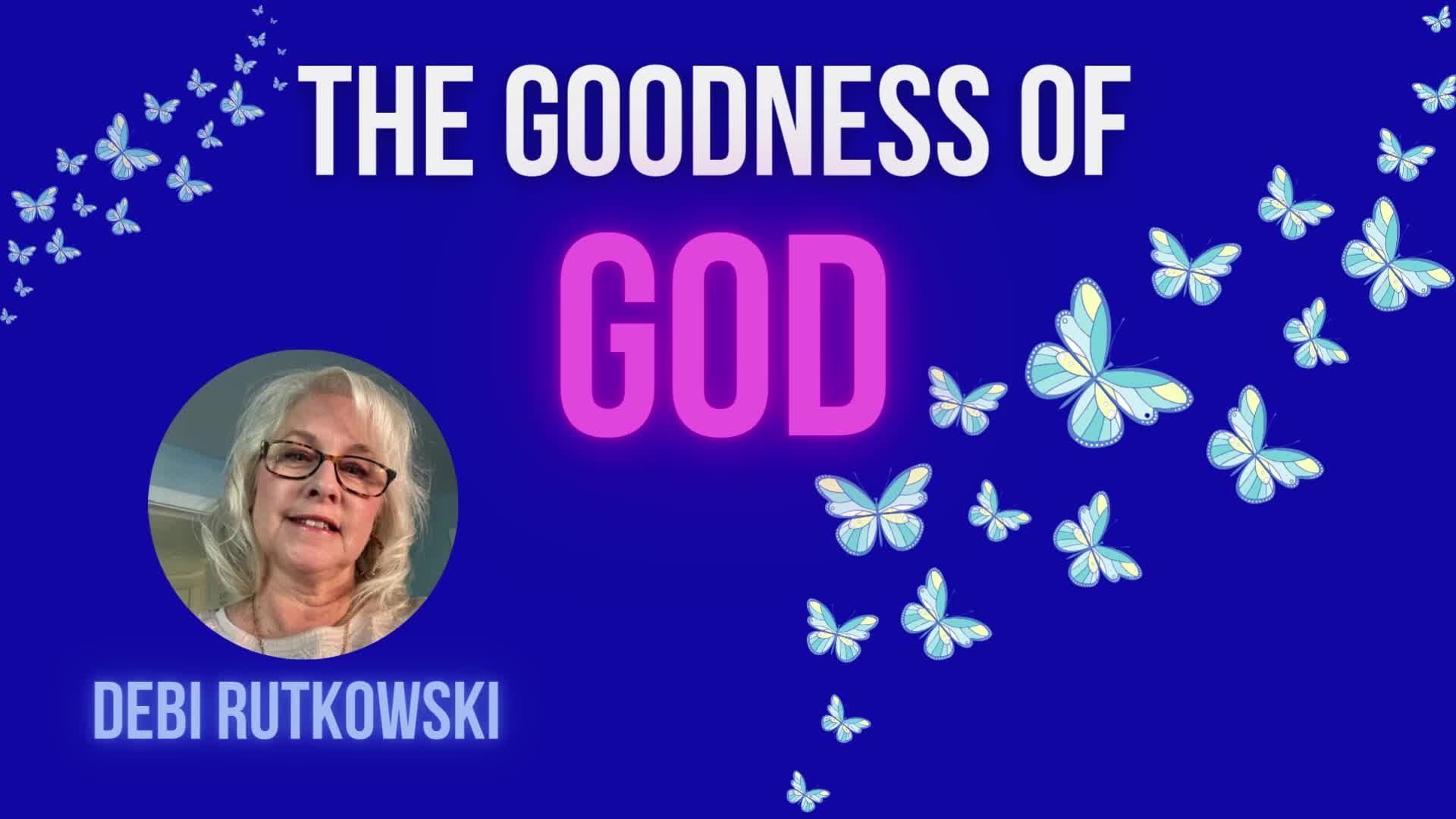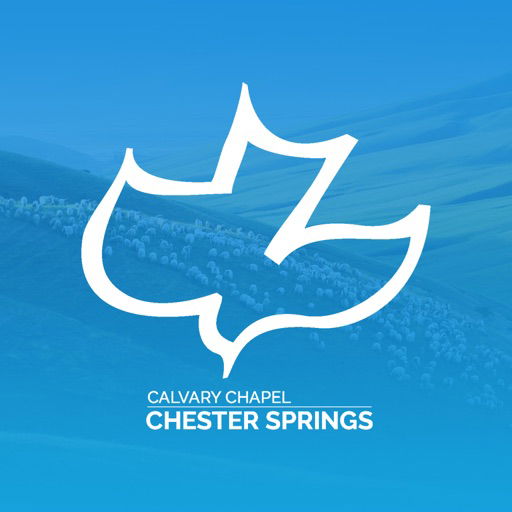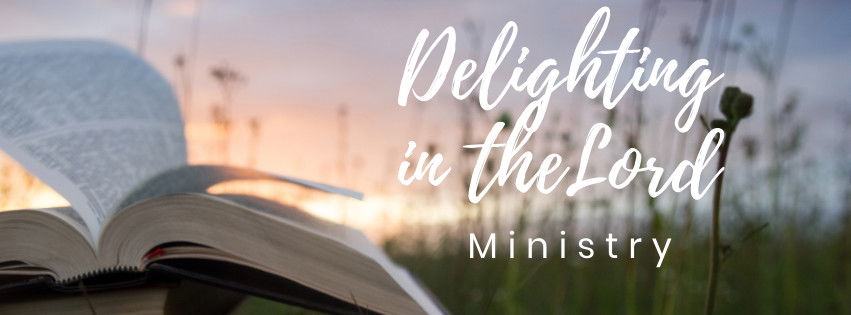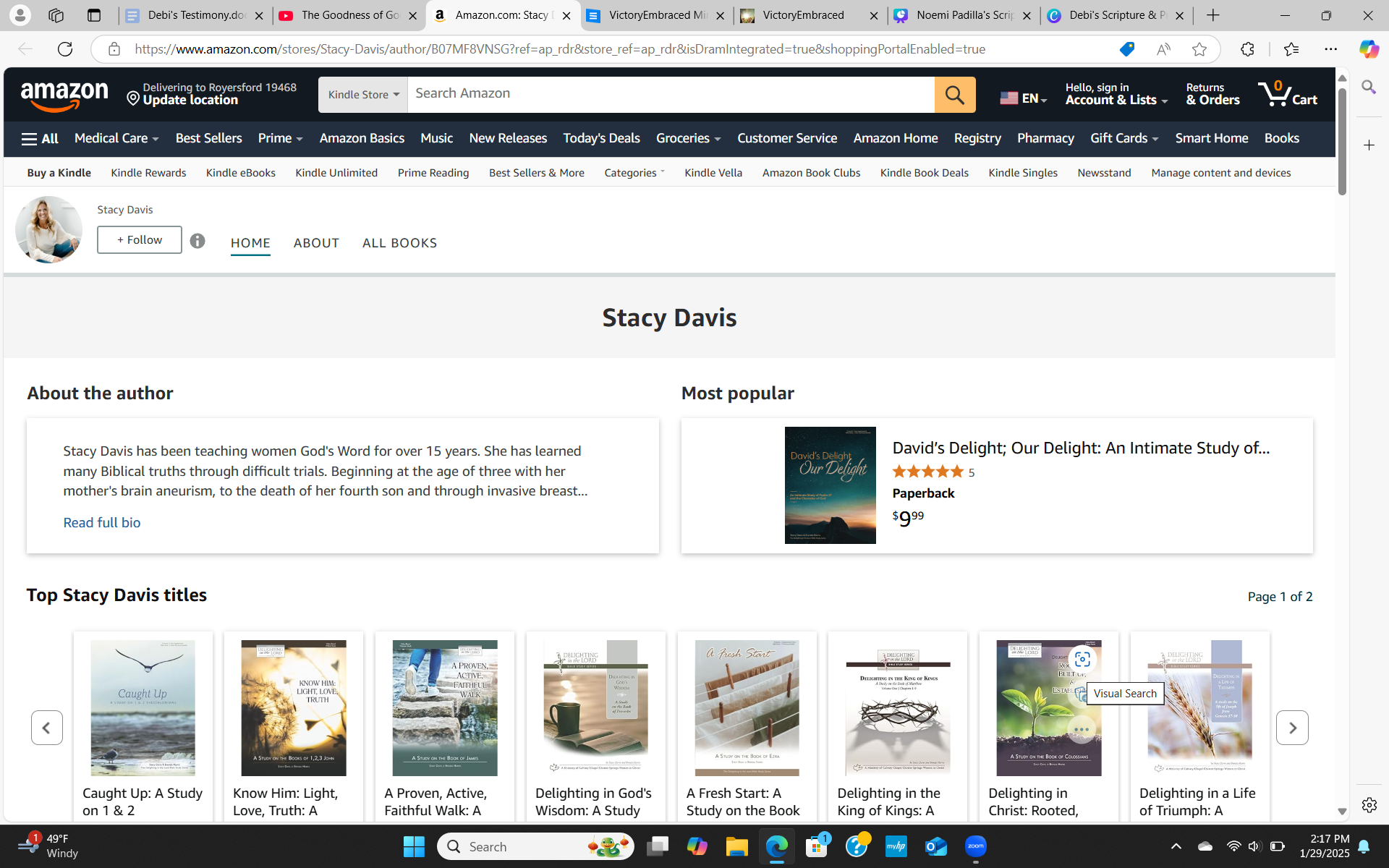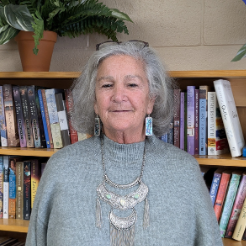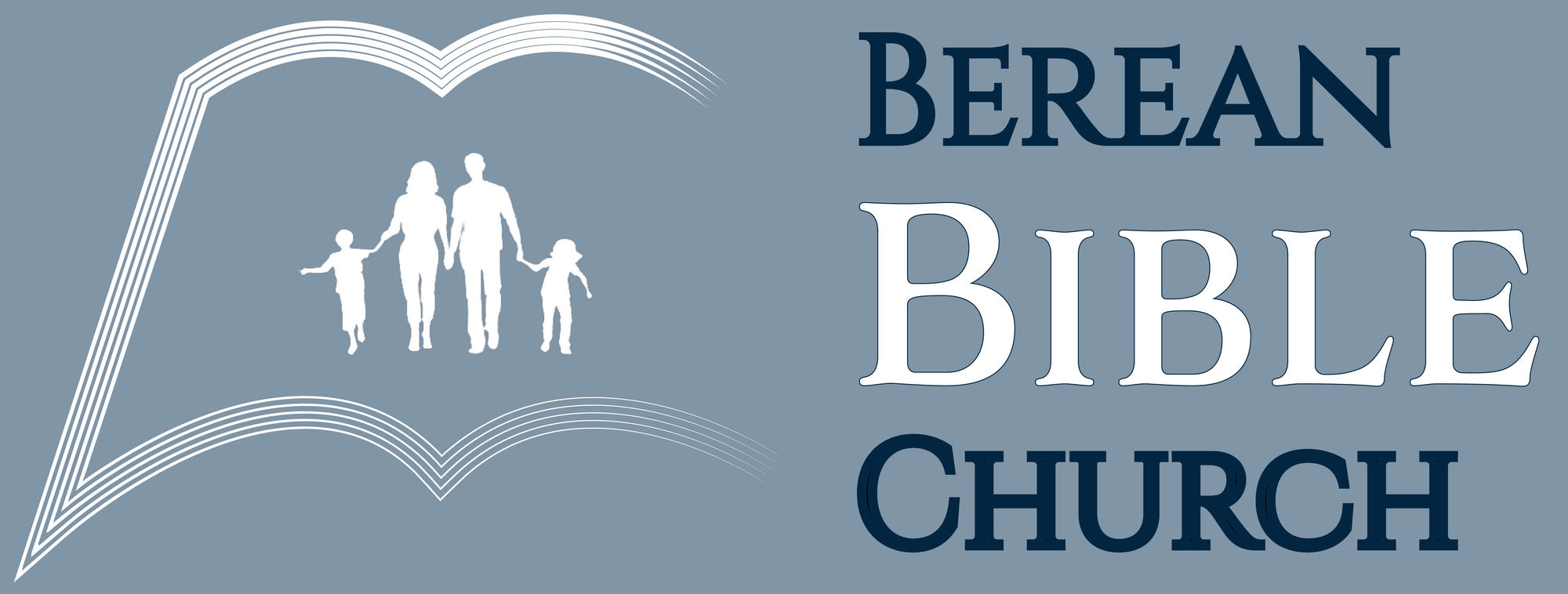Jeremiah James
Founder of United To Revive Ministries and the Truth B Told Podcast
These are Jeremiah's favorite scriptures...
Can you share your testimony and how God began to put United to Revive Ministries and the Truth B Told YouTube channel on your heart?
Yeah, absolutely. I was a high school science teacher for nine years before any of this happened. But when I was 17 years old, I encountered Jesus by His Spirit in a very real and experiential way, and I sought Him with all my heart, confessed my sins, confessed my belief in Him, and decided to live for Him. He radically transformed my life by becoming an experience in my heart and in my life. A lot of people can look at church, the Bible, and hear sermons and think it's just all head knowledge. And it's for another time you die, and then you experience heaven. But I'll tell you what, when I was 17 years old, the Lord poured heaven upon my life through the Holy Spirit. And because of that experience, I believe everything has taken place because of it. But truly, I mean, my path through college, early life, marriage, and as a teacher, I just grew in my calling as I read the Word, as I spent time in prayer, and began to ask the Lord to use my life.
And so I want to encourage anybody listening that, regardless of what I've done or even what Dawn-Marie has done, it really starts in prayer. It really begins by asking Him — He will speak to you and change your life. So, with United to Revive, I was the Fellowship of Christian Athletes huddle coach here in a small town called Bunker Hill, Illinois, while coaching and teaching. And during the whole COVID epidemic and all the things that were going on with COVID, I really felt in my heart that there are so many students who were masked and no one was allowed to be near anyone. And after school, they're told that, basically, if you hang out with one another, you're bad and you're wanting to hurt people, because socializing with others in a time when it’s dangerous. And even if you don't have symptoms of COVID, you still probably have COVID anyway. So you can't be around any person. I was listening to a podcast on our way back from Atlanta about how we are seeing rises in depression, anxiety, suicide, and thoughts of suicide, and they're linking it to this isolation experience that we put students through. Oh my goodness. It broke my heart, and more students were hospitalized; they weren't coming to school, and I was noticing cuts on their arms, cuts on their legs, you know, people were just lost and sad because of what was going on. And it broke my heart.
So during this time, I just began praying, seeking the heart of God, and asking Him, "What can I do?" In that moment, I was crying intensely in prayer with my face on the ground. And I'm just asking God, "What can we do? You know, I will do whatever it takes to be a witness in these dark times for these students." And instantly, He asked me to open up my house. It was very, very noticeable, His voice at this time. The first person I called was someone with whom I've done ministry in the past. She was all about it and said, "Let's go!" You've got to remember that during this time, if you're open, especially as a science teacher in a small town, you know, if you were to hear, "Hey, the science teacher and FCA coach is opening up their houses for youth when everyone else is told to stay home," there are no open churches, and no youth groups going on. Can you imagine the kind of criticism that I could face in that moment, but I didn't care. I didn't care. And then, in the first week, we had 25 students show up, and the following week and the weeks to come, we never had fewer than 30. It’s incredible what we witnessed: even that small group of 30 students — every one of them received Christ after the first four weeks — and it just kept growing and spreading. We never had any “super spreader” events or whatever you want to call them—No one got sick, and nothing like that happened. But the gospel was proclaimed, and we're still here.
I’m going to jump forward because there’s a lot to this. I think we did this for about 1.5 to 2 years, but around this time, we got plugged into a church that saw what we were doing because we were also serving. I love to serve. Half of my testimony is just me serving and loving on people. We are made to grow and serve. We grow in our relationship with God, and then we use that to love others and point them to Jesus. But I got plugged into a church. I never thought I would be a pastor, but I got asked to be a youth pastor at a church. I said no at first because I would consider myself an evangelist more than a pastor. But I accepted the call. And, you know, within a year, the church started doing park services. They asked me to preach. That’s where I learned how to organize bigger events out in parks. I was knocking on doors. We’re praying for people. We’re inviting them back. We fed every person. At these park services, many people experienced salvation and baptism, and these events transformed their lives. Shout-out to Restoring Hope Church of God in Wood River for taking me along on this journey, because I know God used them to get me to where I am today. So around this time, I started feeling like I needed to quit my job. The Lord was literally telling me to leave my teaching career because I’m spending all my time talking about ionic bonds, covalent bonds, vectors, velocities — you know, all these great things. But I want to talk about Jesus. You know, like, we can talk all day about this science, but whenever you’re struggling at home and you have no one to go to, whenever you’re struggling.
For instance, we had a girl call us at 11:30 pm. She cut herself so badly, and she was bleeding out, and she wanted us to take her to the hospital. Do you know why? Because her dad was drunk on the couch, passed out, and she couldn’t wake him up. And even if she did, that wouldn’t be a safe ride to the hospital. So we took her to the hospital. And that’s again, a whole other story. I just felt this pull from the Lord. It really feels like a fire I want to get out of and share the truth. I desire to speak about Jesus in a real way—someone who transforms lives and sets people free. And so I told my wife, and we prayed on it for over a year. And man, there was one time in a meeting at school at Bunker Hill High School here in Illinois, I remember sitting in this meeting and, you know, they’re trying to figure out all these issues with students. And they’re talking about programs, social work, more counseling, obviously more medication, more this, and more that. I’m like, it’s just empty. I know what they needed to drink from the well of living water—these students needed their Savior and a release from bondage. And although I love our teachers and what they’re trying to do—I’m not saying that’s bad—personally, it was my time to leave. So I went home. I told my wife, and honestly, no plan at all; I did not know any of this was going to happen. I quit my job, and when you leave your job in faith, you’d better be praying and believing that God will use your life.
There are a lot of people and coincidences involved in this story; that’s not coincidences. I remember being with my wife at her work one day, and in my mind, I thought I would start a ministry called Truth B Told. And I thought that was going to be an in-person ministry, where I would go from church to church and hold revival meetings and preach the gospel. I want to see people saved. I want to see the church revived. But God had other plans. So I was with my wife one day at her work, writing sermons, preparing my heart and my mind, and studying. And I get a phone call from a businessperson I had never met before, out of nowhere—and to this day, I don’t know how he got my phone number. So he called me, introduced himself, and said, “I heard about what we were doing at the park and wanted to talk about starting a tent ministry.” And I was like, “Okay, Lord, what are you saying here? Is this from you?” I had never been to a tent meeting or to a large tent or tent revival in my life. But I think that if you’re following God’s will, you must be able to see and hear what he’s leading you to. And so I started praying and discerning. Well, watch this. I had a breakfast meeting with the one person I spoke with as a mentor before I quit my job, after this conversation with the business owner about a tent meeting. And I looked at him and I said, “Tom, I’ve got a phone call from a businessperson in town about starting a tent ministry, and I’m discerning if this is from the Lord. I believe it is, and I asked him to pray with me about this.” And he literally looks me in the eye, and he says, “Jeremiah, I have a 40 by 80 tent sitting right now in my warehouse, not being used, and it’s yours. You can have it.” We started crying, you know, because in that moment, it was like the atmosphere around us changed, and we felt God was present in a very, very real way. It was like God joined us on this mission. Tom had a tent. God gave me this vision. And that’s when United To Revive was born.
I want to speak on the fact that it’s called United To Revive, not Jeremiah James, not Jeremiah James Ministry, not JeremiahJames.org, and not seek Jeremiah James because of whatever—this is about all of us. We have over 100 volunteers now, as young as 15 and as old and wise as 91, from different backgrounds and denominations, and we’ve been all over the region—it’s all of us together as one. John 17:20-23 says… “I do not pray for these alone, but also for those who will believe in Me through their word; that they all may be one, as You, Father, are in Me, and I in You; that they also may be one in Us, that the world may believe that You sent Me. And the glory which You gave Me I have given them, that they may be one just as We are one: I in them, and You in Me; that they may be made perfect in one, and that the world may know that You have sent Me, and have loved them as You have loved Me.”
It’s this Scripture that we named the ministry United To Revive. Before we formed United To Revive, I saw this in prayer. It was just like the prayer in my prayer closet, but this was a prayer on my back deck. I’ve had two visions in the last five years, and the first one led to the youth starting in the basement, which led me to here. But the other one was the vision that we believe we’re on this mission to fulfill this prayer. My friend, you are reading a prayer from Jesus. This is a prayer from Him. And He’s praying for us to fulfill something that only we can, and when I look at the world, I see it not being fulfilled. I see the enemy winning because he has created so much division in the church amongst denominations—denominations that preach Christ. Still, they don’t want to unify on Him because they want power. They want control. They want the spotlight. They want tithing. They want money. They believe that their sheep are their sheep and not His sheep. And so they’re afraid that they’re going to lose their sheep to somebody else—it’s mudslinging, and it’s not good. But Jesus prayed for us to be one. May they be one as we are one. You know, He’s speaking to the Father. He says that they may all be one as your Father is in me and I in you, that they also may be one in us.
This is spiritual. This is deep. This is why, later, if we get into it, I speak a lot about meditating on Scripture, slowing down your thoughts, and going into your heart to listen to God, because He calls us to be one with Him. I want to be one with my Father. And there’s only one way to be one with Him. It’s through Jesus Christ. We have access to the Father through Christ.
It’s been a wild three years. But it’s not because of me. We have been in prayer for three and a half years every Monday. Like I said, with different denominations, backgrounds, and ages, we have been praying as one. We take communion every single Monday, and we seek the face of God in actual prayer. I don’t stand up, give a sermon, and then pray for everybody. We all pray. Everyone has a voice. If the Lord gives you a scripture, we read it. If he gives you a prayer, you pray it. And we’re praying for this region with precision and focus. Faith is coming alive. Churches are on board, and we’ve had about 150 meetings and 200 prayer meetings in the last 3 years across 11 local cities.
So that means that we’ve gone into a city and we’ve hosted large-scale, massive tent revivals where hundreds and hundreds and hundreds of people gather from all walks of life to hear the gospel and to see Jesus lifted high. We had hundreds of volunteers from every denomination and background, and I’m so thankful for them, who came from a 50-mile radius across this entire region. It is so fun! We fed 6,250 people free food and a free dinner. That doesn’t include our homeless outreach. If you show up at one of our events, we’ll make sure you eat, and you don’t have to pay for anything. We’ve reached over 10,000 people in person with the gospel. Also, we have seen many hundreds of people give their lives to Christ, get baptized, and rededicate their lives. Now, I don’t count numbers. We try to get people plugged into a church afterwards. Jesus called us to make disciples, not converts. It’s challenging, but we pray that the Holy Spirit will lead different people, such as pastors, who join our events. If you belong to a church, invite someone to church. We need to do this naturally, because if you try to make it feel like a program, it just comes across as rigid and unnatural. We get salvation commitment cards from people, and every person receives a birth certificate when they get baptized.
We’ve reached many people in this region, and we are seeing church growth throughout the region. Many churches are actually growing in numbers, and pastors are being lit on fire for Jesus. We have one pastor who came out of depression. No one knew it except his wife, but he was in full-blown depression. But whenever we came into town, we locked arms because we’re here for each other. It’s so good. This pastor then wrote me a letter about how, when we went out on the street and started serving the homeless, and then we went through the tent revival, it literally lit a fire in him that he had not felt in 5 to 10 years.
We’ve had two ministries that have started or been born out of this one, and they are on the ground now, serving the homeless multiple days a week and helping get homeless people off the streets—should they choose that path—by feeding them and loving them. And seeing other people like me and you being used by God, just regular people. You’re talking to people who go to work and are nurses, teachers, accountants, lawyers, and go on the street. They learn how to serve and love those that, unfortunately, society and even the church sometimes reject, but when you begin to love your neighbor, like Jesus told us to, you come alive; your faith, your life, and everything become so much stronger and more fulfilling because you’re doing what He told us to do, which is to love. And that’s what we do, and I love bringing people into those circumstances to do things they’re not used to doing, or maybe they’re afraid to do, because once you break that fear barrier in faith, like I said, you come alive.
I want to share a testimony of someone whose life was changed and give you an idea that you don’t know what’s going to happen—you walk in faith and trust God. Before we did our big Alton tent revival this year, we were on the streets ahead of time, feeding people. Some would donate food to us, and we would bring it to the homeless and meet them where they are. One particular one that really stands out is when we went to a person who was sitting next to a gas station outside a bar, and we asked them, “Hey, do you want some food? We had hamburgers there, and they responded, “Oh yeah, yeah.” And he then asked, “Are you with the church? And we’re like, “Well, kinda. We don’t all go to the same church.” There was a group of us, and we shared Jesus with them and prayed for them. And then when we invited them to the tent revival, well, one of them came, and his name was Michael. The first few days, he was outside the tent. He had a knife on his staff, wore necklaces with cult symbols, and had tattoos all over his face; he was also addicted to meth. Many brothers and sisters were loving on this person—love will break down barriers. A couple of people in love said something to him about the necklaces, and he became convicted because they had cult symbols on them. By night three, he ripped those suckers off and threw them right into the river. And then, before long, he was in the tent and worshiping the Lord. He decided that he wanted to travel with us to our next stop in Kampsville, Illinois, on the Illinois River. It’s a town of about 200 people, and he camps out with us. He was there the first night, and he gave his heart to Christ. But what I didn’t know at the time was that he brought some meth and needles with him to the tent revival. The Lord convicted him the next morning. I was in my trailer after we had just finished this excellent time in the Bible and the Word, and we were camping at this spot on the Illinois River. He knocks on my door, and he hands me a bag with his meth and a syringe. And he says, “I’m done. “I’m done!”—he completely gave it up and surrendered everything to the Lord. That’s repentance and confession. I didn’t judge him or scold him for bringing it—nothing like that. I hugged him. We cried, we prayed, and then I brought him outside, and more of us prayed for him, and we were celebrating. And Michael got baptized that night—he’s no longer homeless, has a job and a license, and is entirely different. No more meth. He’s on fire for the Holy Spirit. Jesus went for the one, and he brought him home.
We also know of men who used to call themselves female names, but no longer do. They no longer want to live that lifestyle —they want to date a woman, not be one. Alcoholics are sober now. Meth addicts are no longer meth addicts. People are getting off the streets. Families are now restored. We're talking about brothers and sisters who haven't spoken for years and are now restored to one another. I want to repeat it–This is not because of Jeremiah James—This is because of the unity of believers—This is what happens when we lay down our pride. We wash each other's feet, humble ourselves for one another, and allow God to use us as individuals. He will make it happen.
We are to humble ourselves and make Him known. How can we do that? Not everyone is gifted in evangelism, so how can we show His love in our everyday lives or learn to evangelize?
Well, there's a fun little quote by C.S. Lewis that says, “Humility is not thinking less of yourself, but thinking of yourself less”. We need to stop thinking about ourselves so much and think more about God, our Savior, and believe in Him and what He wants to do in our lives. And so, how do we do that? The first thing is we have to let the Word of God dwell in us richly. We need to know what the Word actually says about us—it says some amazing things about you whenever you come to Christ and become a new believer. If you're not a Christian right now, I'm telling you that you’re never gonna find satisfaction in this world, no matter what you do. No matter how many people you date, you get married, have kids, take the drugs, get the career, make the money, you will always want more. I know there are also Christians out there who are Christians, and they're not fulfilled. It's because you're not living out the life that you've been called to do. You don't know who you are yet. Learn and come to know what the Word of God says about you.
Jeremiah shares some scriptures that teach us who we are in Christ and our purpose. It’s important to know who you are in Christ, your purpose, and gifts to give Him glory and make disciples.
How did Truth B Told come to be?
I felt a pull from God to start this YouTube channel, Truth B Told. We started this channel with me just sitting on the couch interviewing regular people who came on the podcast, sharing their testimonies, so people can be encouraged and inspired, no matter where they are in their lives, to realize that it may feel hopeless now, but when God comes into your life, He can turn everything around. He uses what we go through for good and gives us a new direction. Lots of people prayed to unite, and that’s exactly what I was praying for. At first, I didn't know anything about YouTube. Honestly, I didn't even want to get on YouTube. I don't like being in the spotlight, but I think God will send someone else if you don't. You're in sin because you're disobeying God, or someone's going to do it that has wrong motives, someone who's going to be doing it that's really just trying to build a platform in the name of God, but they want to lift themselves. So I would rather see more genuine Christians out there who speak about Jesus and see what He does, because in my case, I had no idea we were going to be at 227,000 subscribers at the time of our broadcast interview—it's really just blown up in the last six months or so.
I want to speak about the importance of rest because we're so zealous for good works. We want to please God and live out this calling, but so many of us forget to rest. It's in these times of rest that God will not only strengthen you, but He'll speak to you and give you vision. It was in that time of rest that the Lord told me to start making videos to share world events and talk about Him, so I started praying about it, and then, you know, the next thing was that things started showing up in my path. I started learning here and there and making the videos I do today with a biblical worldview. I want to be honest, talk about my love for Him, and inspire people to read the Bible, pray, and be the Christians and children of God that God wants them to be.
What's the importance of Christians having a biblical worldview, being good Bereans, and having discernment, especially in the times we are in?
One of the most significant questions anyone could ever ask is the same one Pontius Pilate asked Jesus before He was crucified. And it's the question, what is the truth? What is the truth? And so I've been on a quest personally to seek that out. I have degrees in biology and chemistry, was a high school science teacher, and I desire to know the truth. Jesus said, "I am the truth." So I believe that if you're an honest seeker of truth in this world, it will ultimately lead you to Jesus of Nazareth—not the person of religion, not the person your church talks about, but the real historical person who literally walked 2000 years ago, named Jesus of Nazareth. All roads will eventually point to Him if you are honestly seeking the truth. So when it comes to a biblical worldview, it was satisfied in my mind when I started looking at science. When I started looking at the tough questions about where the universe comes from? How did the Earth form? How did people get here? Is evolution true? I just started asking all of these questions in my mind, and reading and seeking like crazy. I didn't even used to like reading, but once I started getting into this, I was like, "Man, I love reading." And so I was reading different authors and philosophers, and I started forming this biblical worldview that shows me that, yeah, Jesus is the real deal. He is who He said He was, He did what He said He would do, and He's coming back. Also, we have to get into the Word and discern, but man, don't be afraid to question; don't be scared to look into this, because the world is way more mysterious than meets the eye. We need to recognize that there's an enemy. A cosmic struggle has been going on since we rebelled against God by eating from the tree of life. Once we did that, sin entered the world, infecting our thoughts, emotions, and desires. And so now we're infected, but we also have this evil liar that is behind the scenes. Satan is not in hell, right? He's not hanging out in hell with a pitchfork waiting for people—No, he's on the earth literally now. And the Bible says that he goes throughout the earth, and puts the kings together to battle against the Lord and His anointed. We are in a cosmic spiritual war that actually exists right now. And if you finally take the Bible and look at it through the right lens—like, it's not separate from this world, but it is the world — it teaches about the world. It will make everything you see make sense. I don't get into politics. You won't get me to really get into politics unless the Lord calls me to do something in that realm, but like, I don't need to. This supersedes politics. A liar is pulling the strings of it all. And that's why you're never going to see unity in politics. You're never going to see anything good happen out of all this in the truest sense, because there's an enemy that's gathering the world's forces for a day of battle with the Antichrist and the false prophet. So, you know, you have sin, and then you have the world. That attacks our flesh and makes us want to rebel against God—all these things that rebel against God. And then you have the spiritual forces of wickedness in the heavenly realms, as spoken of in Ephesians 6, chapter 12. So, when you realize you have an enemy and that you need saving, it'll always point you to Jesus. We need Jesus. We need Him. He's the only one who conquered the grave. He's the only one who has authority over satan, and He's handed it to us, His church, and that's why we need to wake up and see this for what it really is—a cosmic war—and He's called us to join it. So, a biblical worldview is the only worldview to have. Test everything by scripture. Don't even listen to me. Look at these things in the scripture for yourself, and the Holy Spirit will teach you as you submit.
Jeremiah shares some more scripture, and that we're all on a mission to make Jesus known so that everyone can believe.
Is there one more piece of encouragement you can give?
Many people have lost faith and hope, and they're having a hard time finding a solid biblical church. These days, I believe the Lord is calling back again what I've been calling the faithful no-names. Think about who Jesus originally called: regular people, not skilled in theology, not the Pharisees. He didn't call them. He called regular people. I know and believe that He's doing the same thing literally right now. The days are short. Many people are claiming that they're this or they're that. Prophets and false prophets are rising up. There are signs in the sky. The climate is crazy. There's all this tension and division worldwide. We have the rise of AI, all these different things, but we're not to fear. Be encouraged.He's coming back for us, and it's going to be better than ever. But He's called the faithful no-names to take their place and know who they are in Him. I want to encourage everybody: just because you're not known, just because you don't have a platform, doesn't mean you're not important. Live your life for an audience of one. Seek Him first. He loves you! He gave His life for you. And if you've been reading this, know He's giving you a new identity and a purpose—not to walk in weakness, but in absolute power, supernatural power through the Holy Spirit—to be His witness. John the Baptist said, “He must increase, but I must decrease.” The more you let go and let your flesh be crucified and know that you’re not doing this on your own, you trust the Lord. Wow. Now you're walking in a new way. Oh my goodness gracious. God will do it — trust Him — seek Him; ask, and you'll find.
Jeremiah's Ministry Site & Social Media Platforms
United To Revive Ministries YouTube Channel
United To Revive Facebook
United To Revive Instagram
Truth B Told YouTube Channel
Truth B Told Facebook
Jeremiah James Instagram
Jeremiah shared his testimony on...
Truth, Talk & Testimonies
Jeremiah's testimony is also on...
VictoryEmbraced: Truth, Talk & Testimonies
